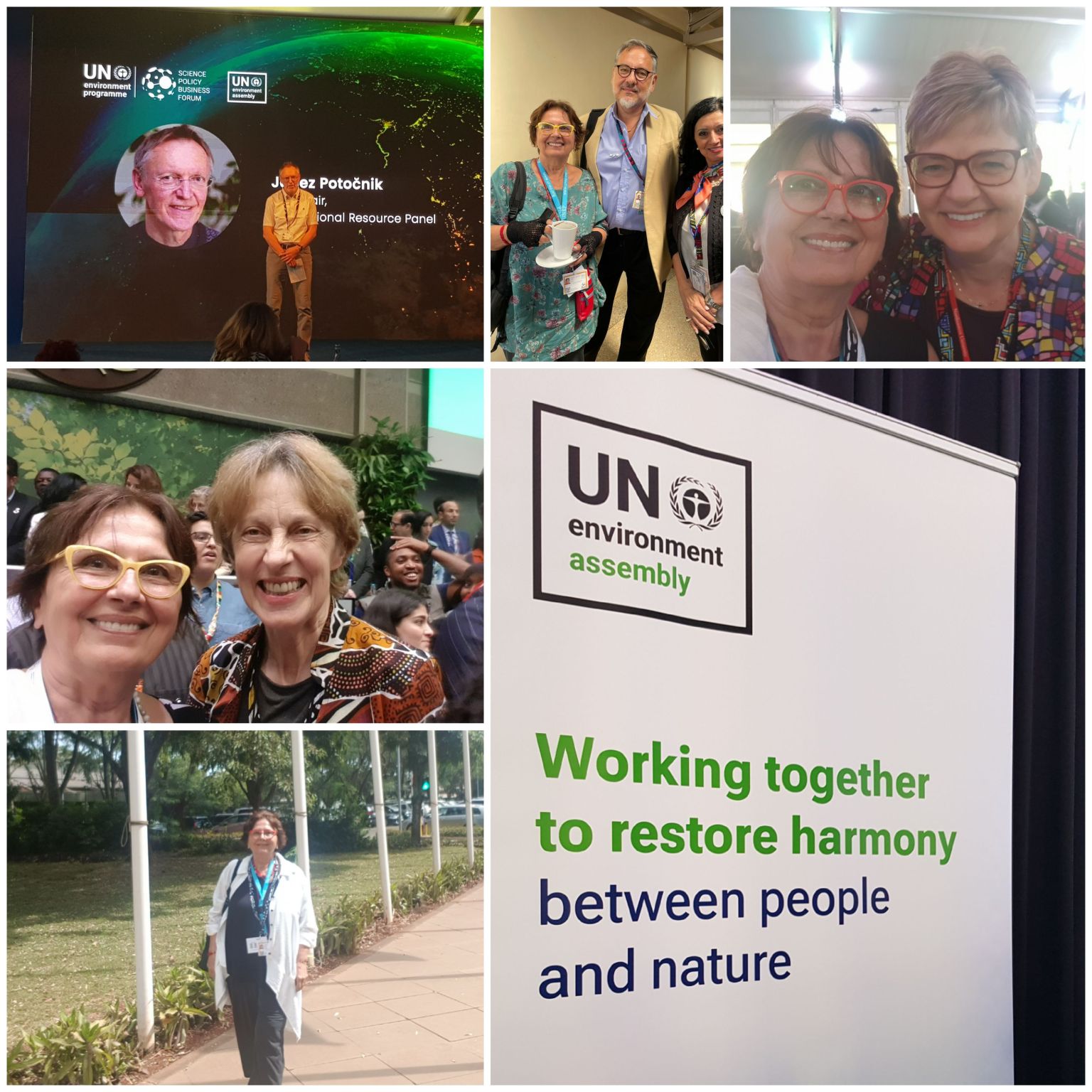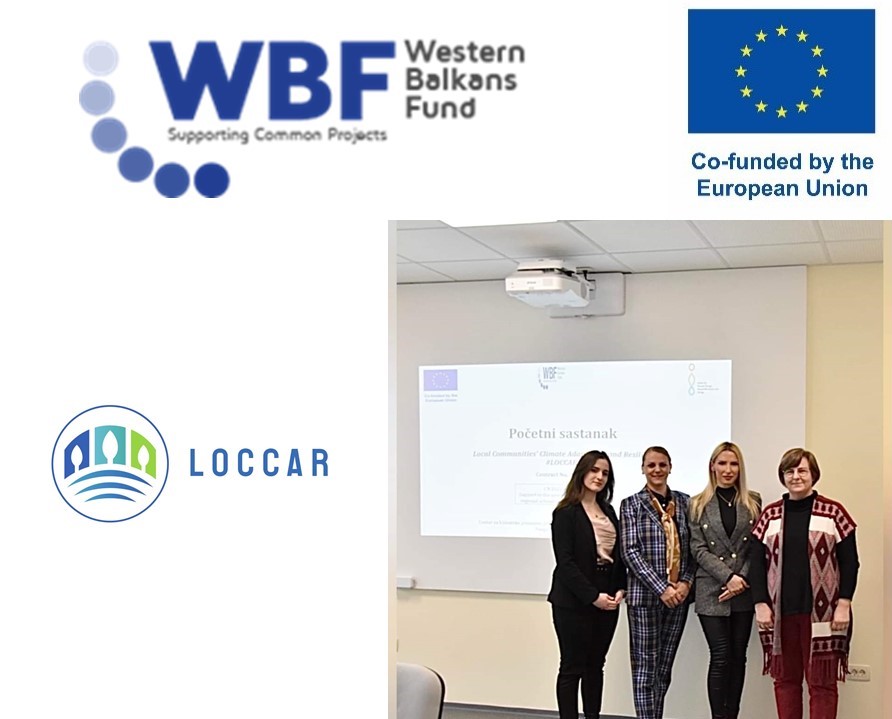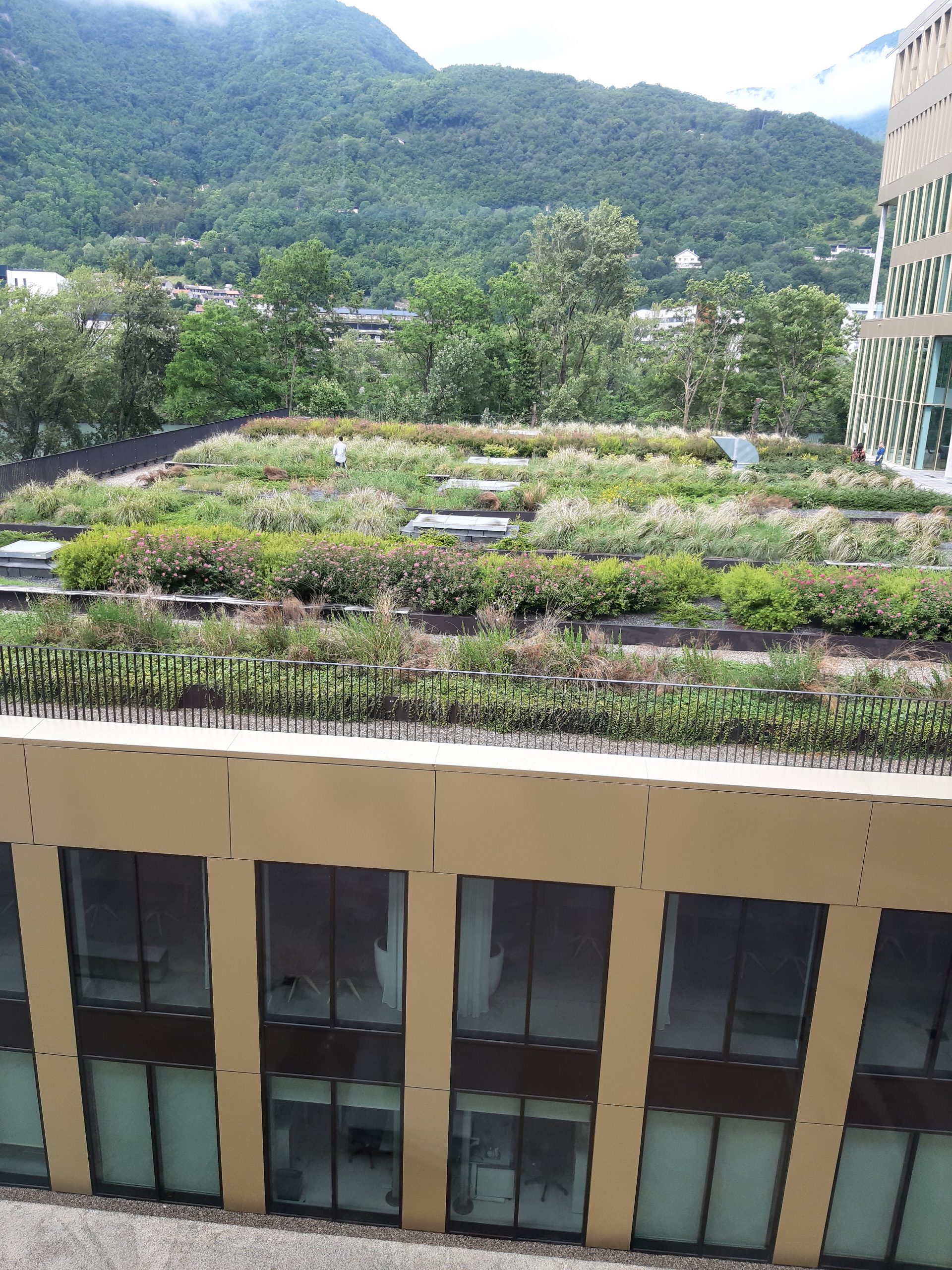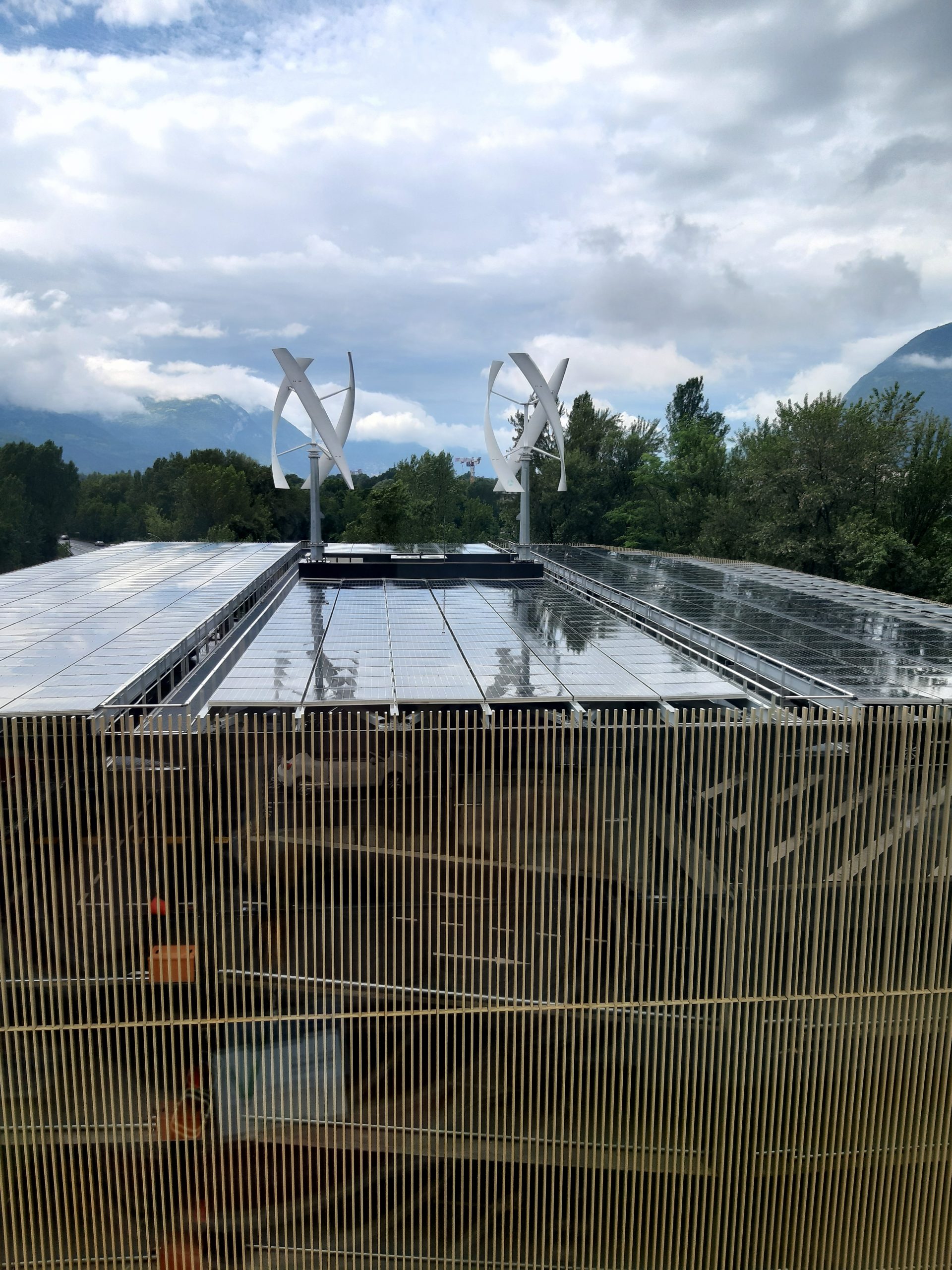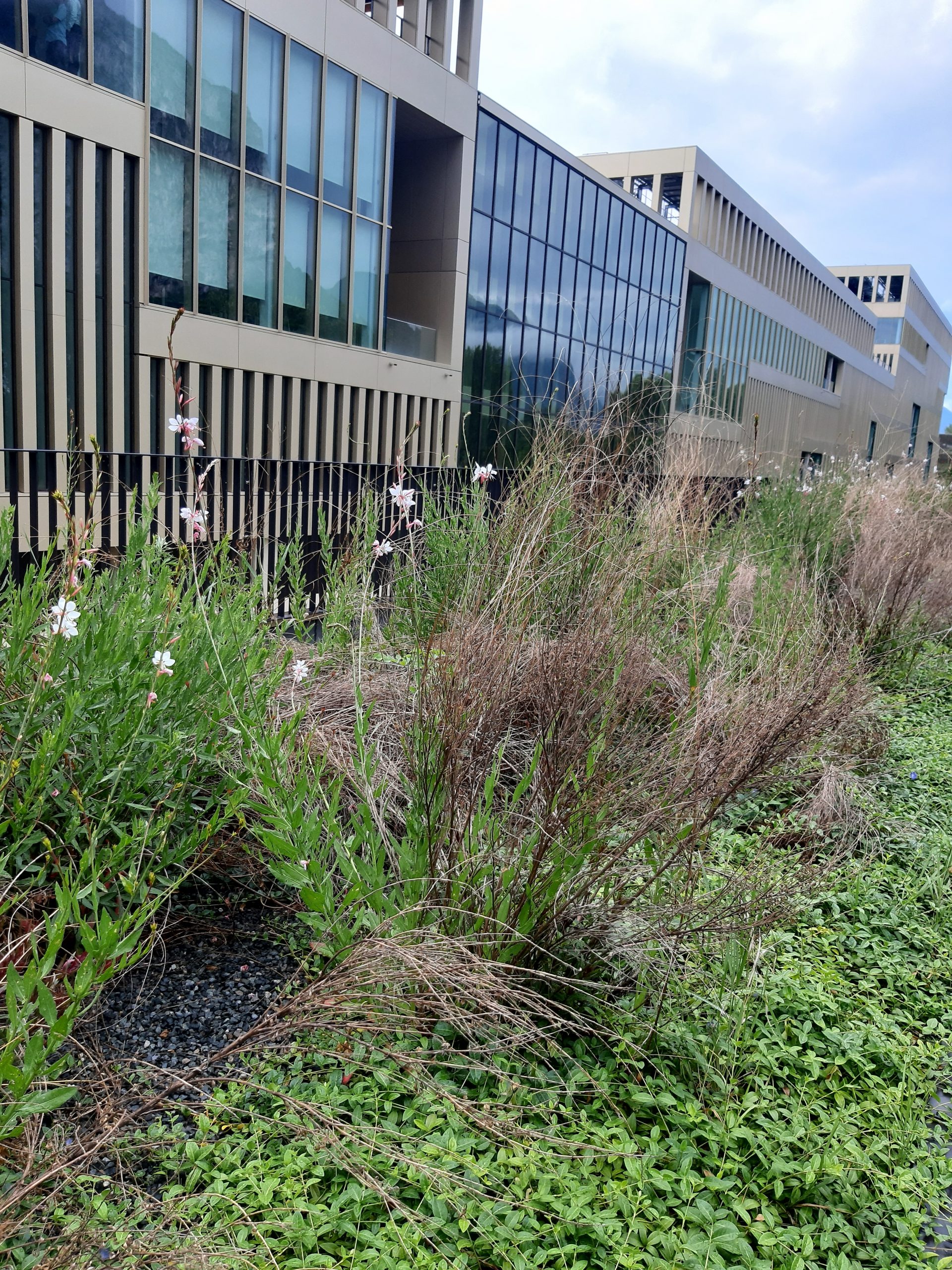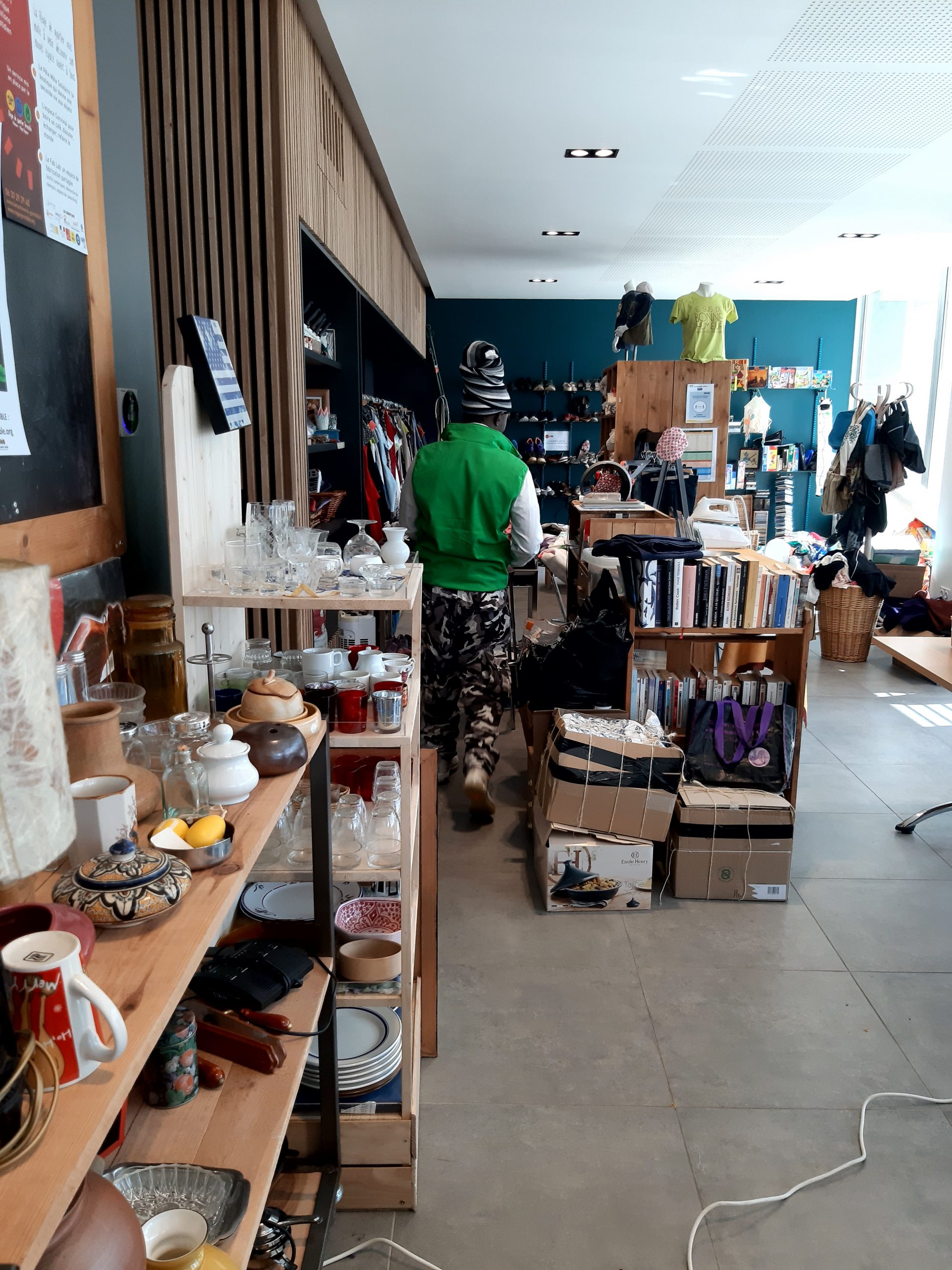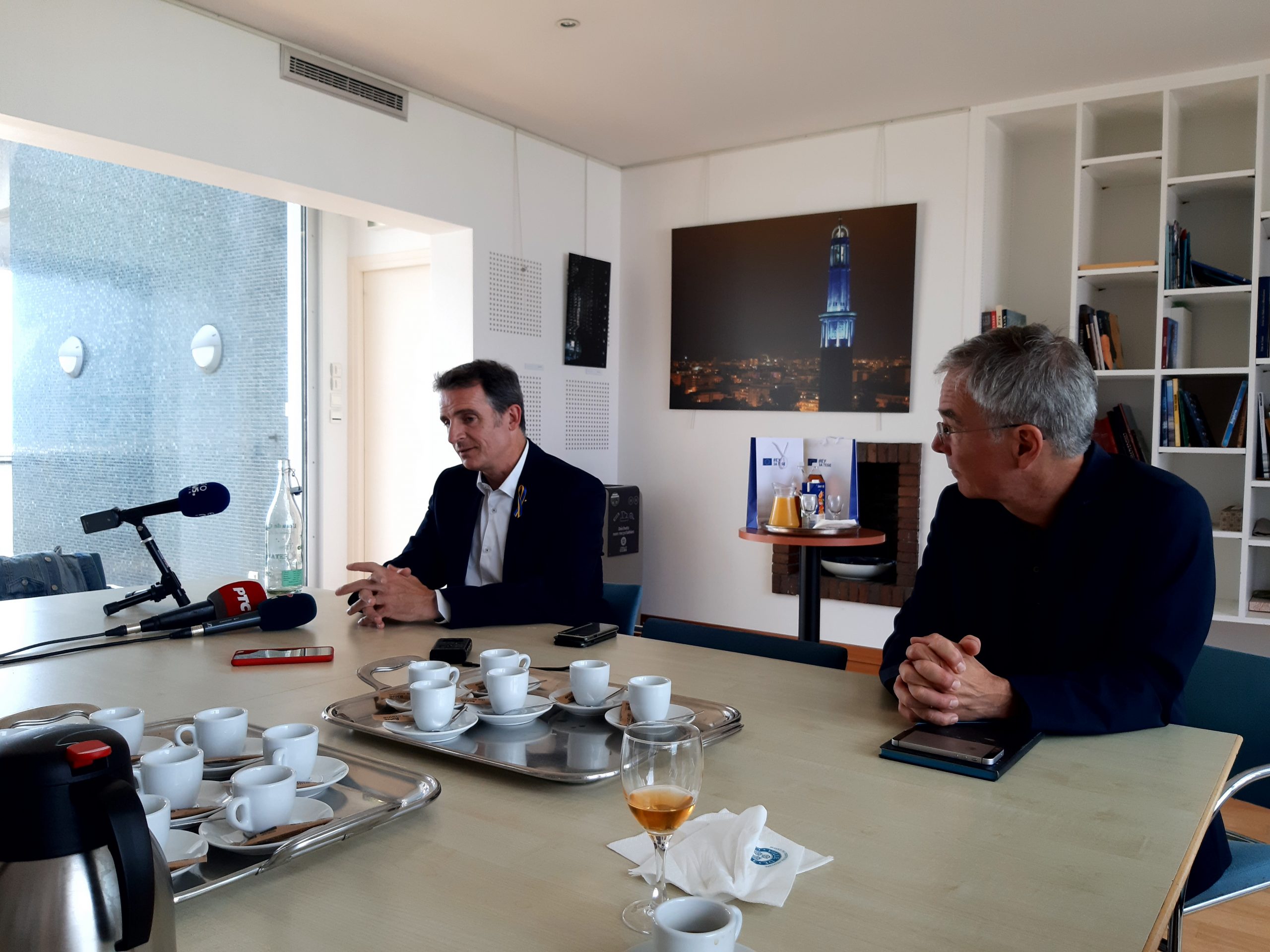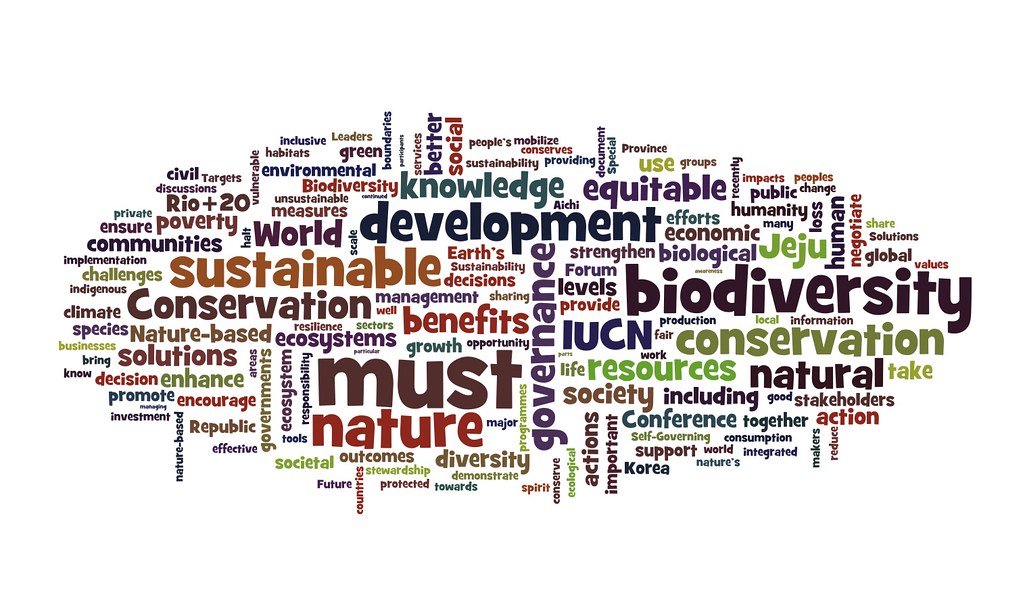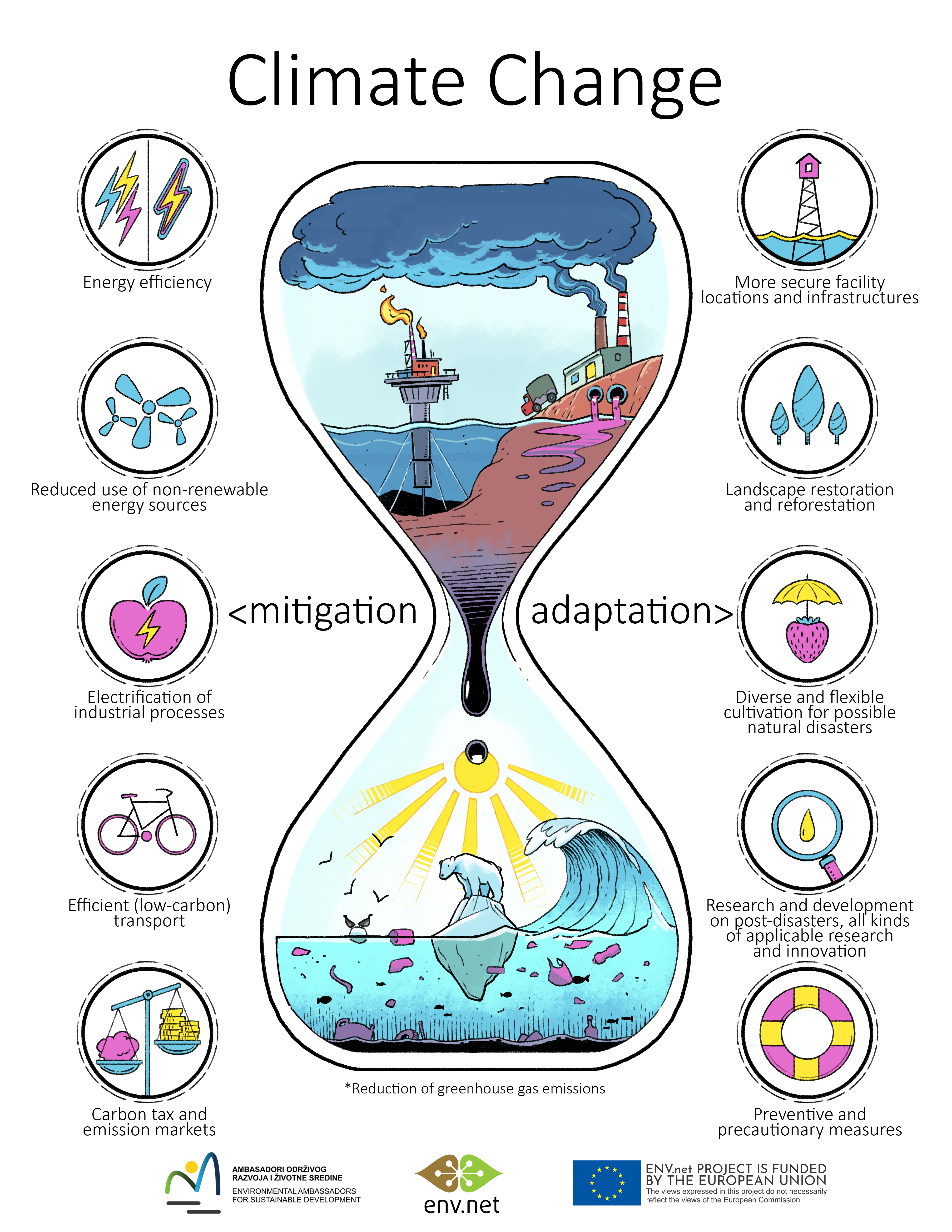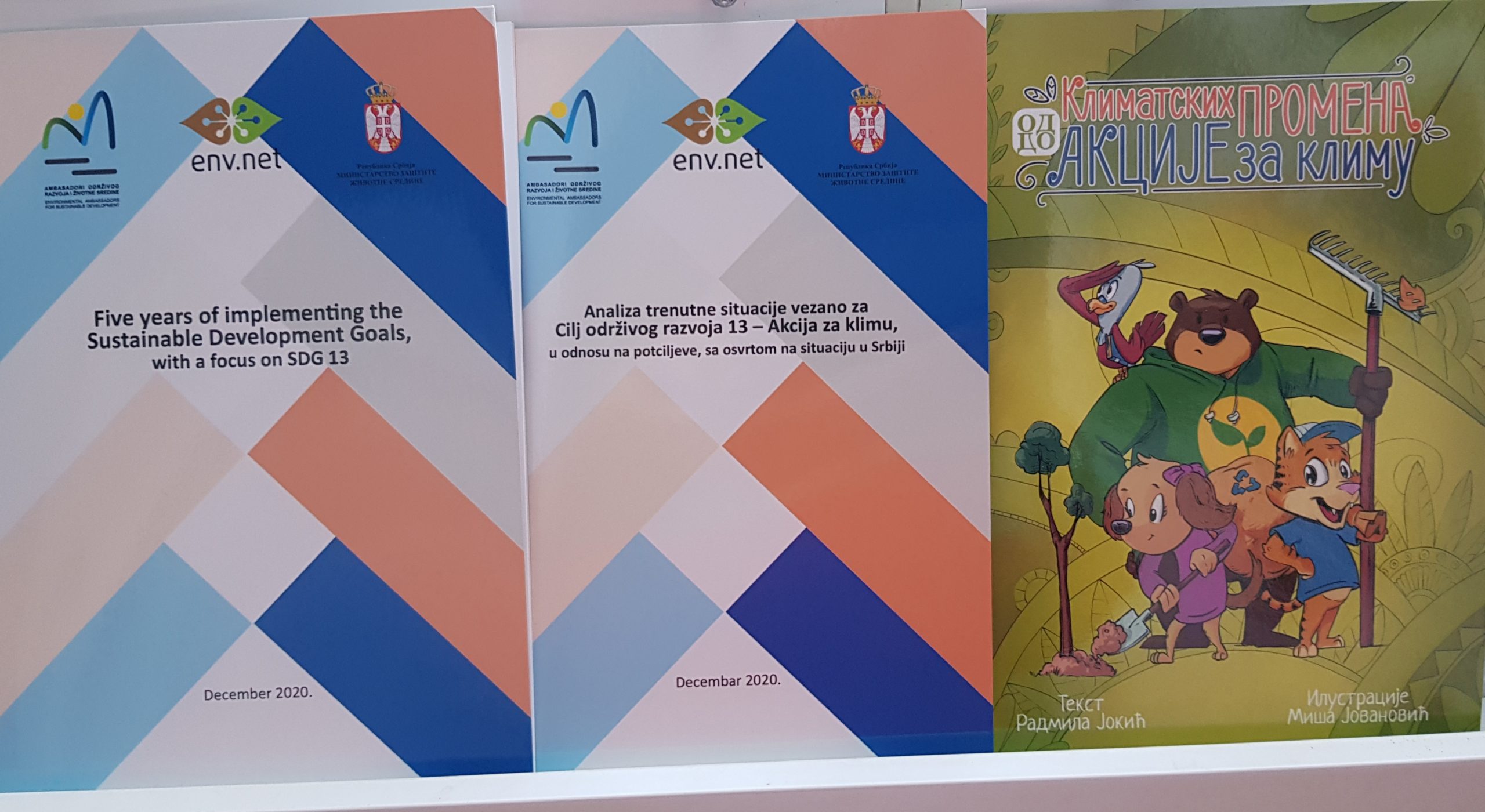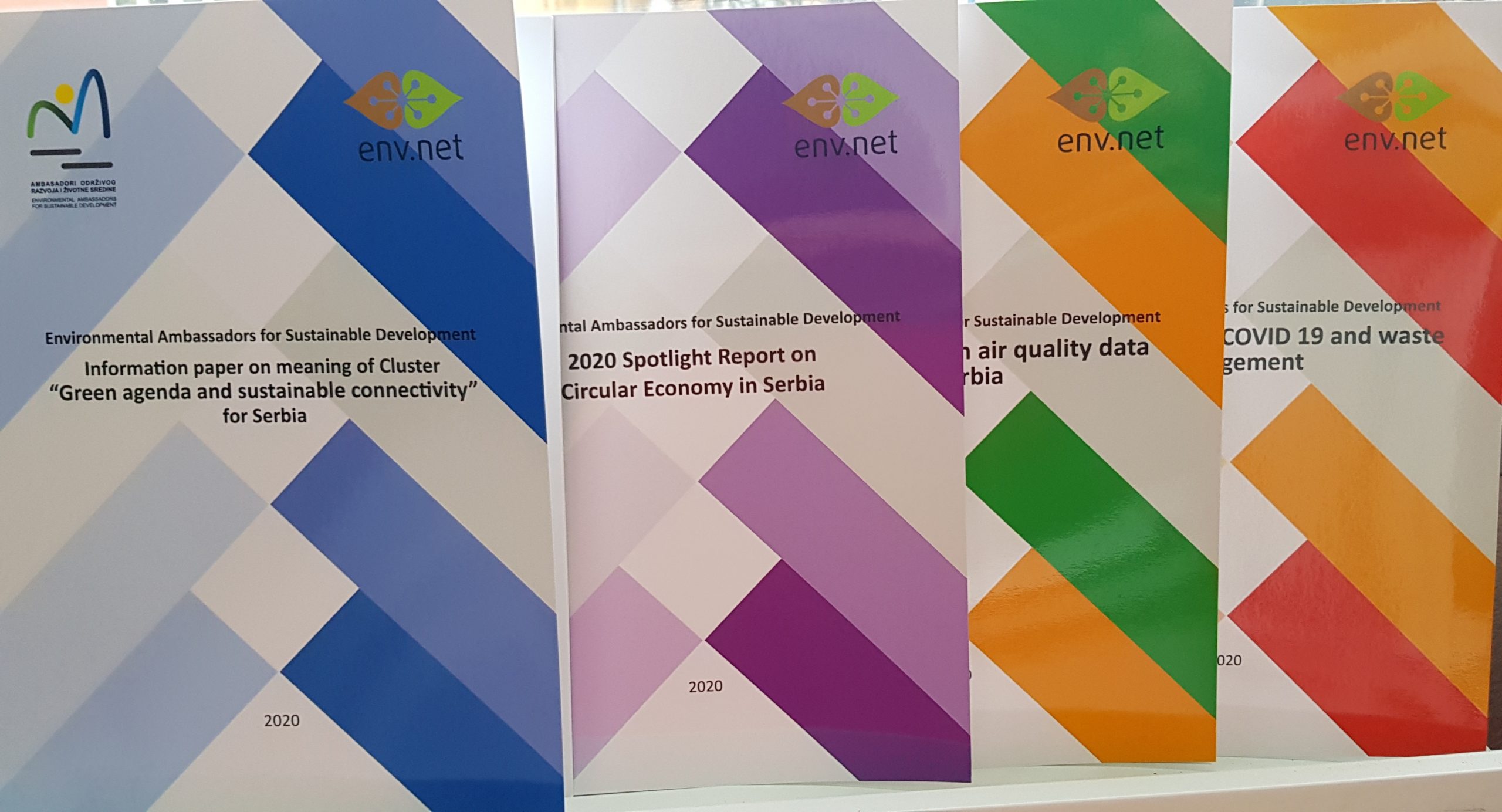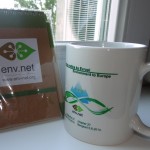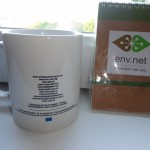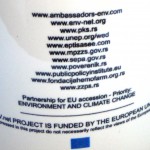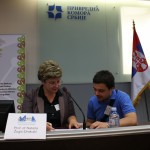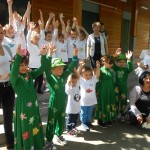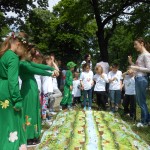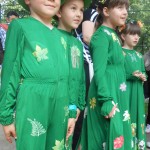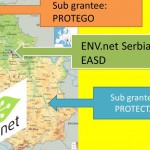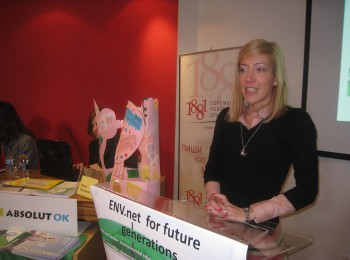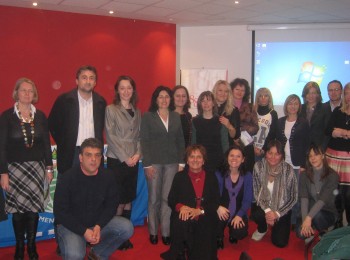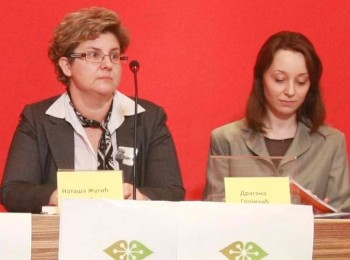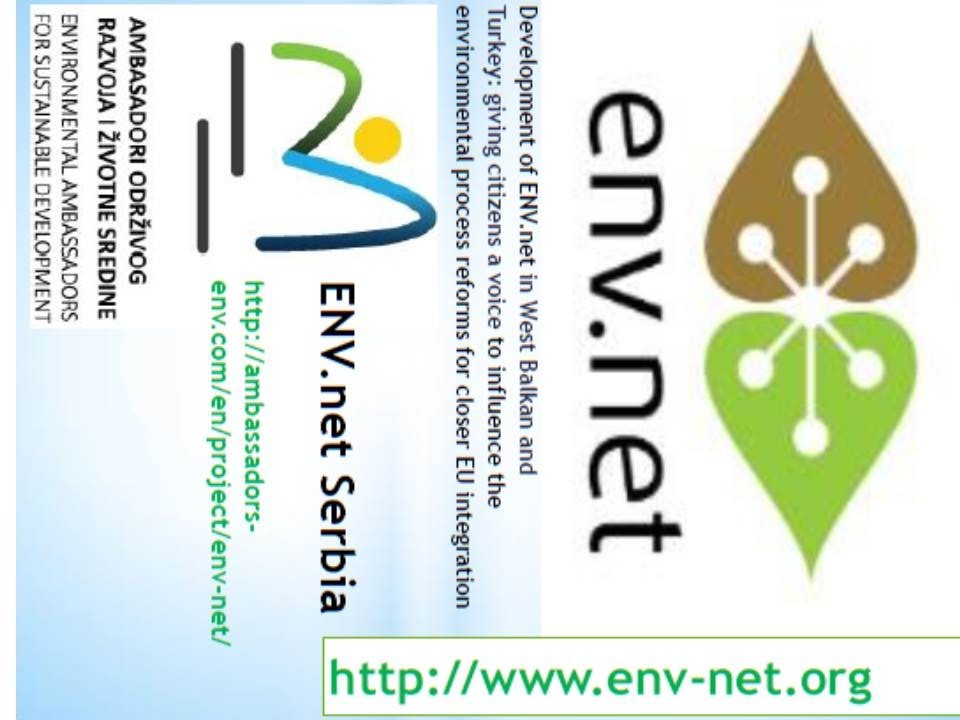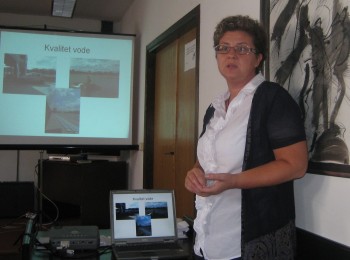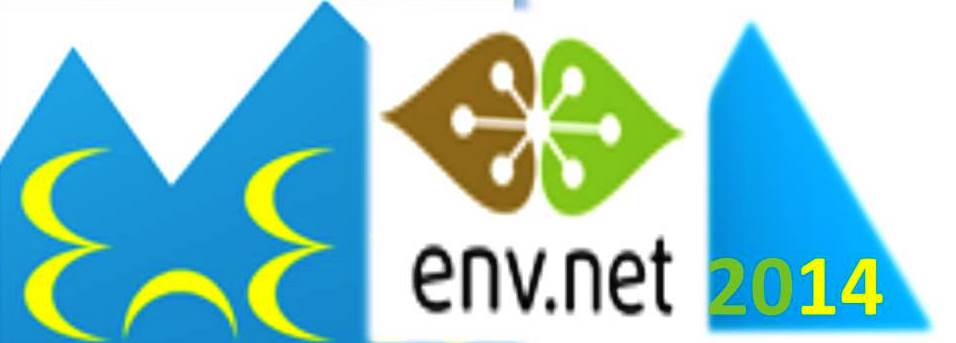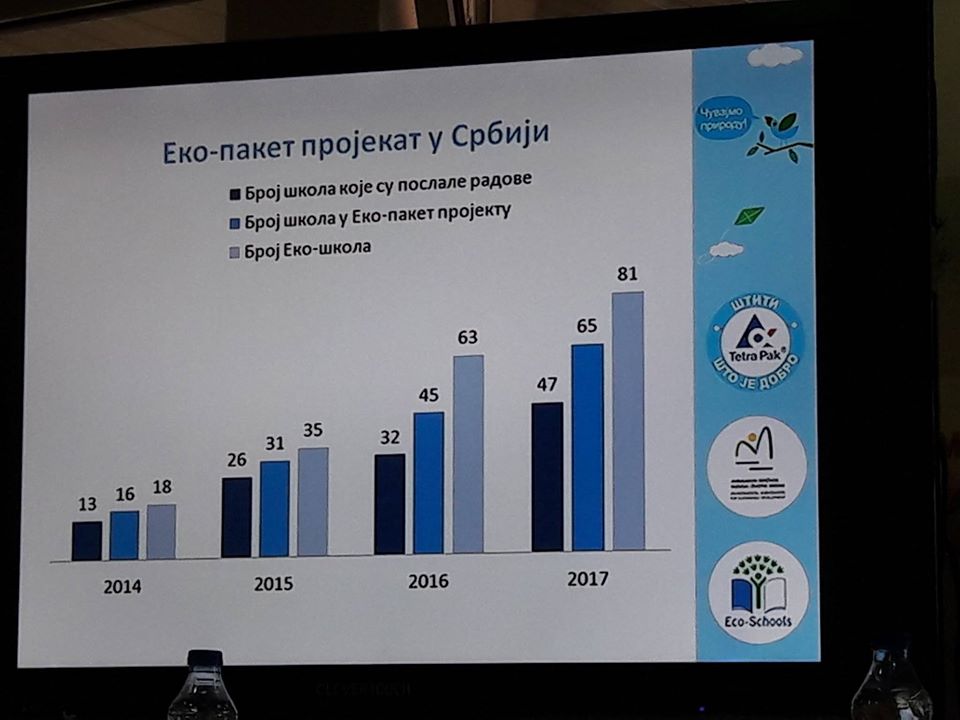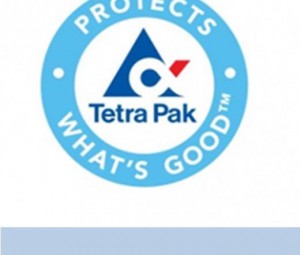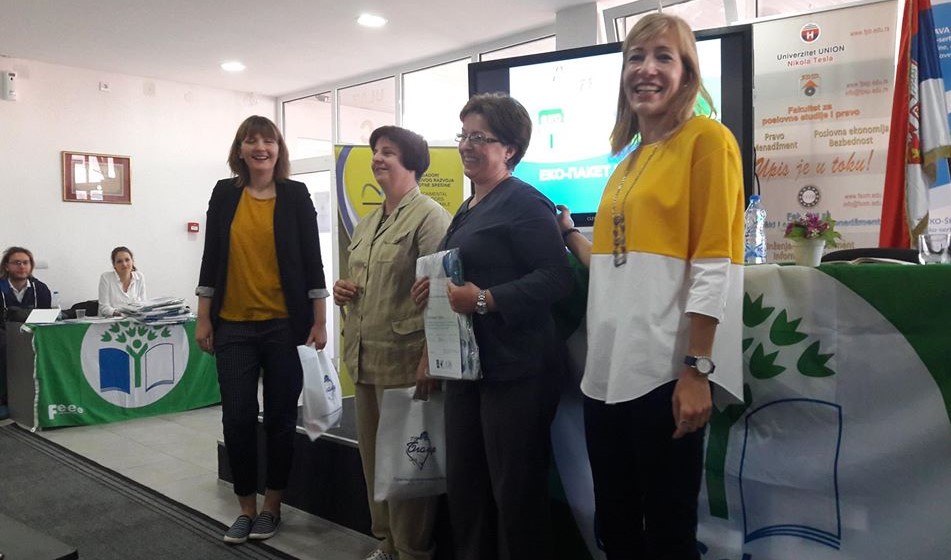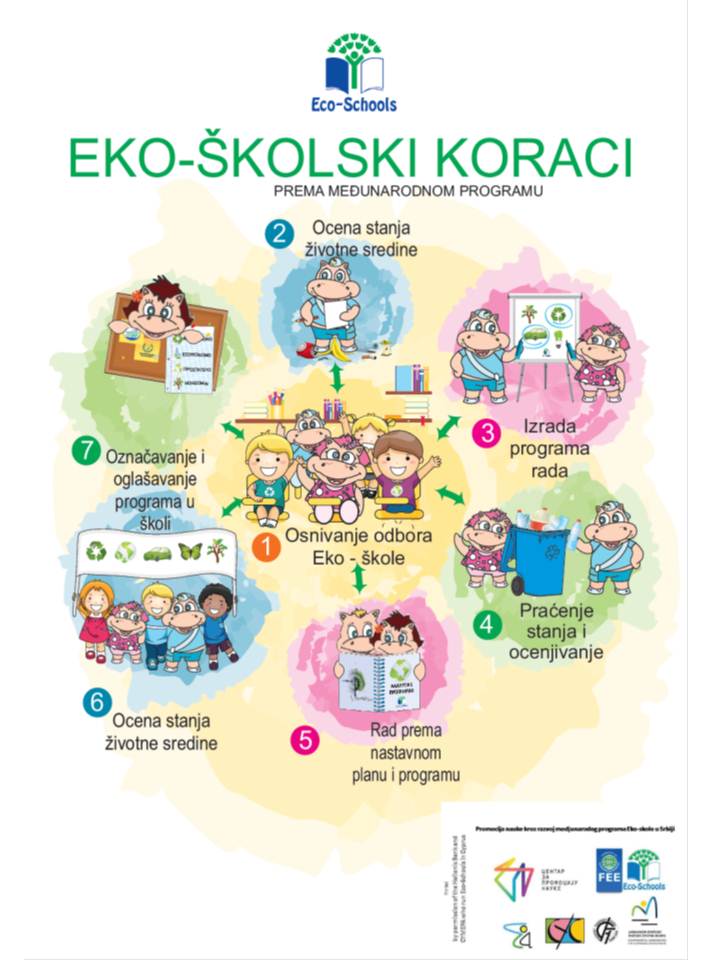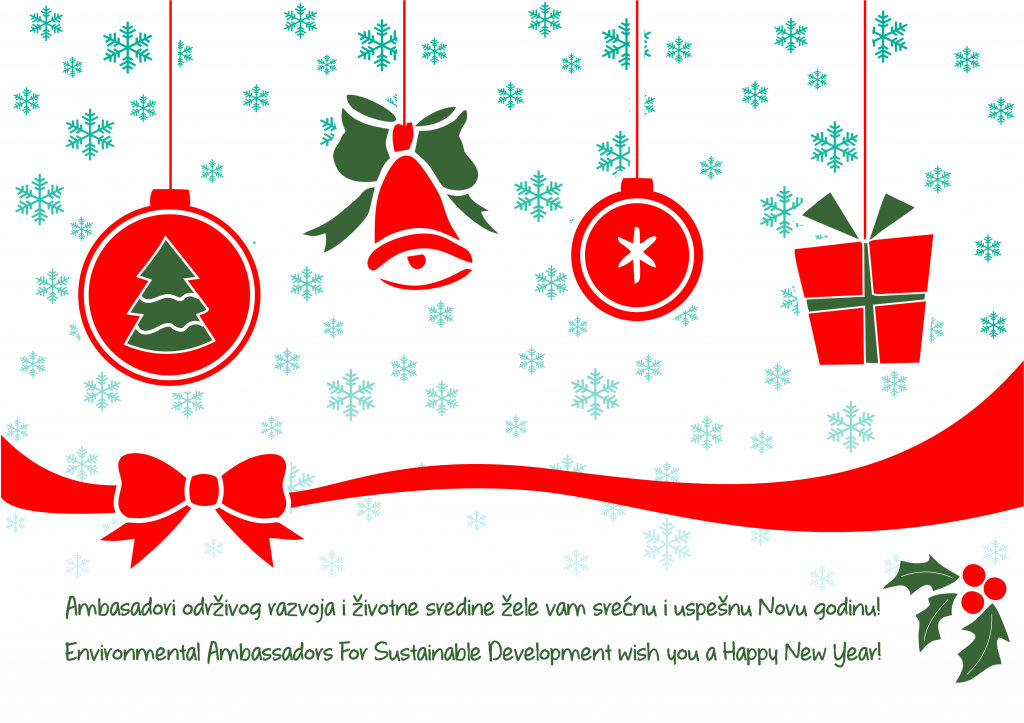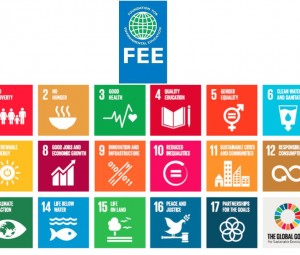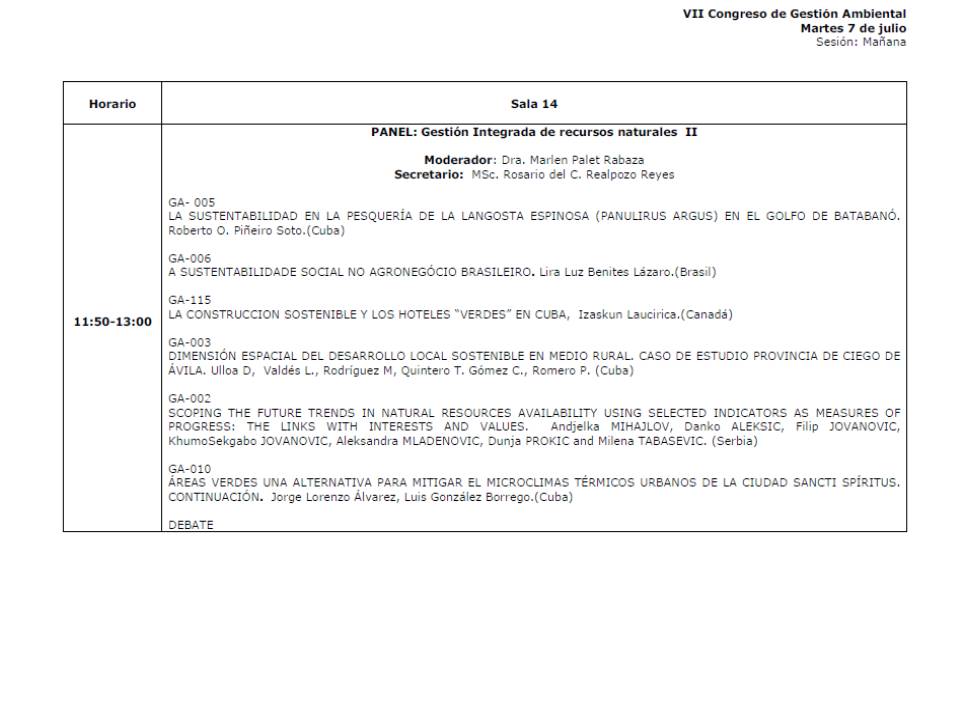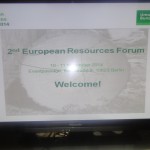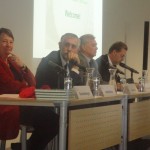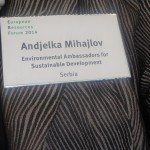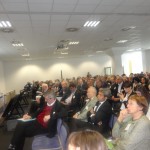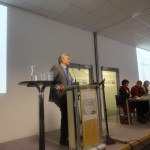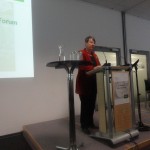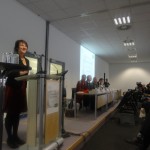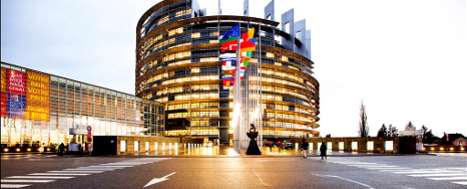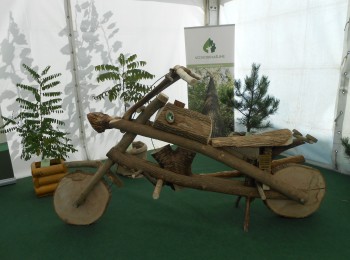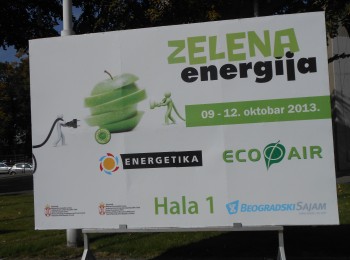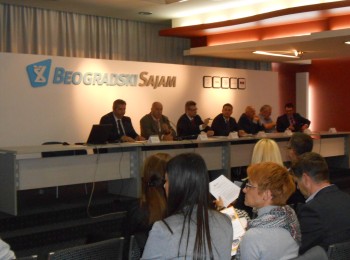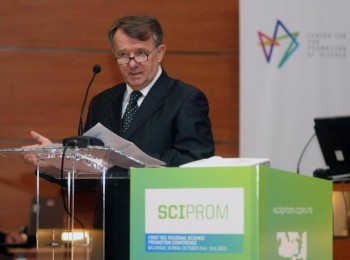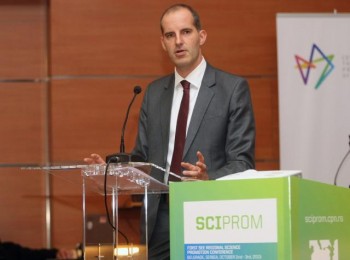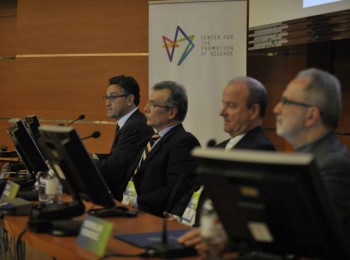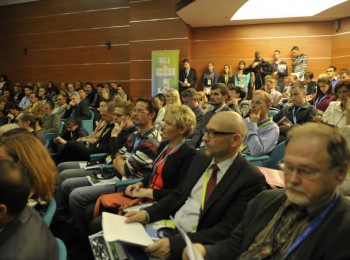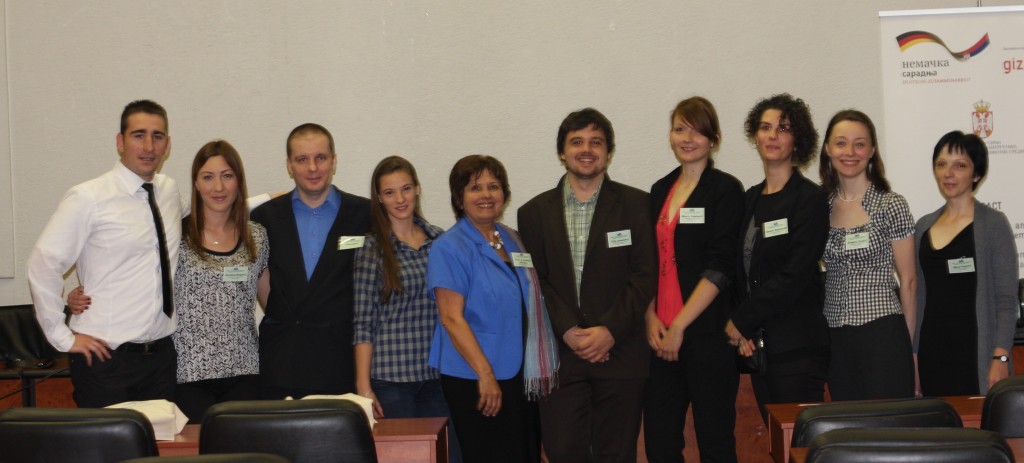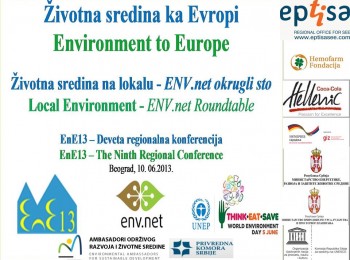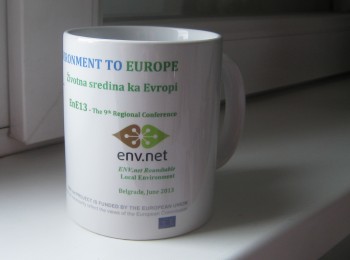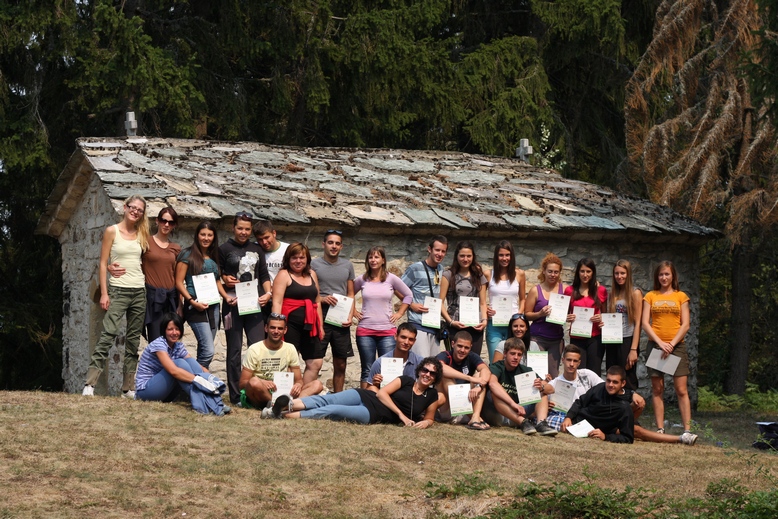(Some) reflections from UNEA6@UNEP2024 participation
As the world’s top decision-making body on the environment – the sixth session of the United Nations Environment Assembly (UNEA-6), is taking place from 26 February to 1 March 2024 at the United Nations Environment Programme (UNEP) headquarters in Nairobi, Kenya. UNEA-6 is focused on how multilateralism can help tackle the triple planetary crisis of climate change, nature and biodiversity loss, and pollution and waste. More on UNEA-6 webpage . In parallel, Sixth Open-ended Committee of Permanent Representatives took place, as a preparatory meeting of the UNEA agenda. Also, the Global Major Groups and Stakeholders Forum (GMGSF), took place prior to the United Nations Environment Assembly (UNEA) (26 Feb 2024 – 1 Mar 2024)
I have the impression that this UNEA meeting is somehow different from the previous ones – maybe later I will analyze those signals of differences that I observe. For now, I will just repeat the sentence that I heard and how I heard it at UN Science-Policy-Business Forum on the Environment (parallel event), which somehow best express my impression on the whole meeting – “From the Limits to Growth we came to consider now the growth of limits”.
Cooperating with UNEP for 25 years (having different roles and positions, from civil servant, minister, technical expert, scientist, civil society, consultant) this is my fifth participation in Governing Council/Global Ministerial Environment Forum, or UNEA meeting. It left a good impression on me that, on the margins of UNEA 6, I met some people with whom I cooperated or am cooperating, or we simply walked in parallel, on the long, still unfinished mission for the appropriate place for the environment and natural resources in architecture of sustainability. Proud to be in the group of people who don’t give up, including Aleksandra Mladenovic@EASD – representing Environmental Ambassadors for Sustainable Development, among the others.
(Some) reflections from UNEA6@UNEP2024 by Prof dr Andjelka Mihajlov, EASD Honorable president
Erasmus+ “ForLife” project at destination – Soverato, Italy
After the trainings held in Slovenia in Celje (13-17 May 2022) and in Serbia in Kraljevo (26-30 September 2022), teachers from three countries, Slovenia, Serbia and Italy, gathered again in Italy in Soverato, from the 17th to the 21st April 2023 within the Erasmus+ project “ForLife”. About thirty teachers will share their experiences in using different tools and methods in teaching the importance of forests, from biodiversity, through health and sustainable use of resources, to the preservation of the natural environment.
Together with the hosts of the “Jump” organization from Soverato, schools and the local administration of Soverato, the opening ceremony at the “ForLife” project was in honor of the sea, about the importance of the sea for society, economic development of the community. Special attention was paid to a demonstration of the skills of special rescuers – dogs, who are trained to react quickly and energetically if the safety of swimmers is threatened.
Very positive energy, free and uninhibited behavior of children, happiness and pride that they are “part of the marine ecosystem”, is the special impressions that we experienced greeting the sea, and a sense of togetherness that different social structures and interests bring together inhabitants in the fight for a healthy environment and especially a clean sea.
During the four days of training, the participants will have the opportunity to become familiar with the forest and marine ecosystems in the vicinity of Soverato municipality and to share previous knowledge and experience about the importance of forests and green areas for the general well-being of people and wildlife.
The training agenda can be found at the link.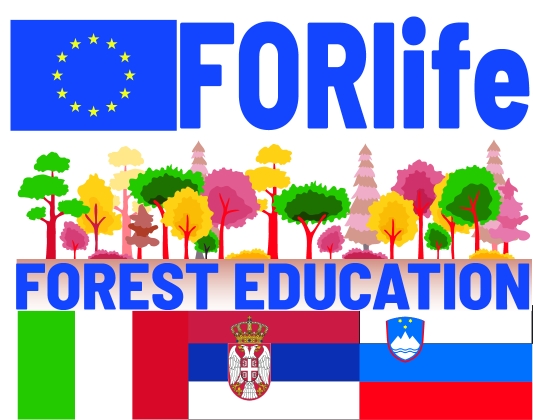
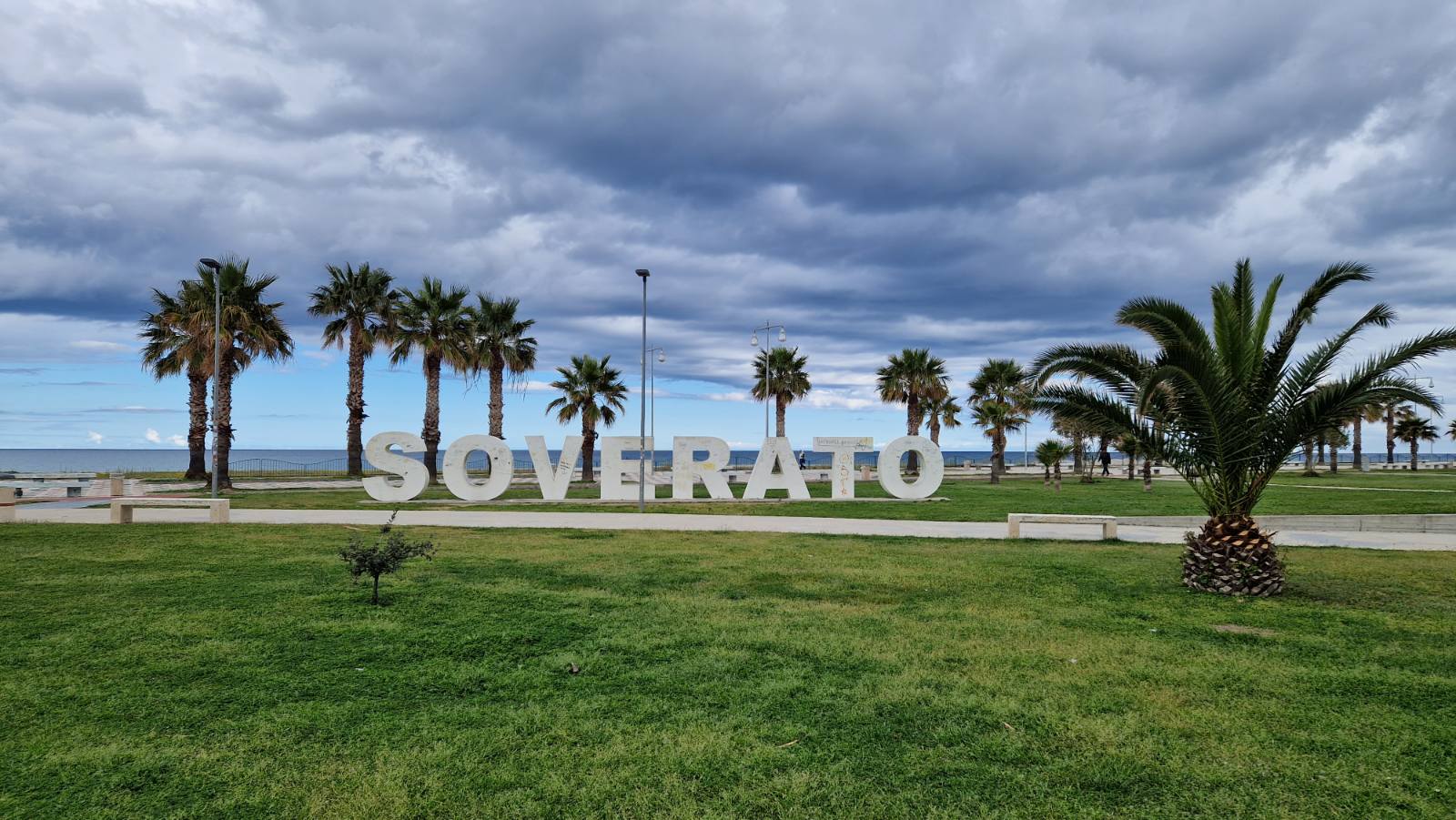
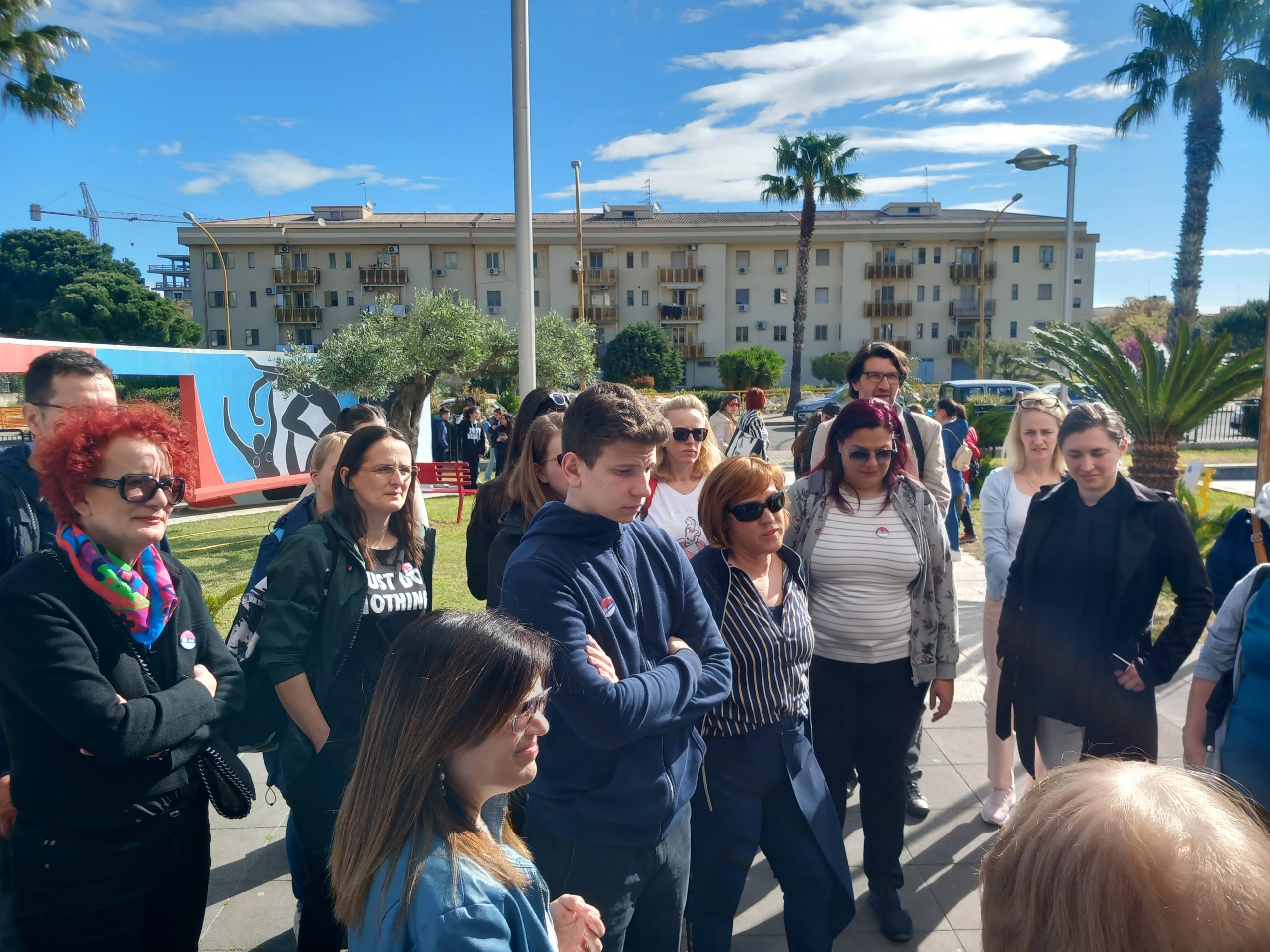
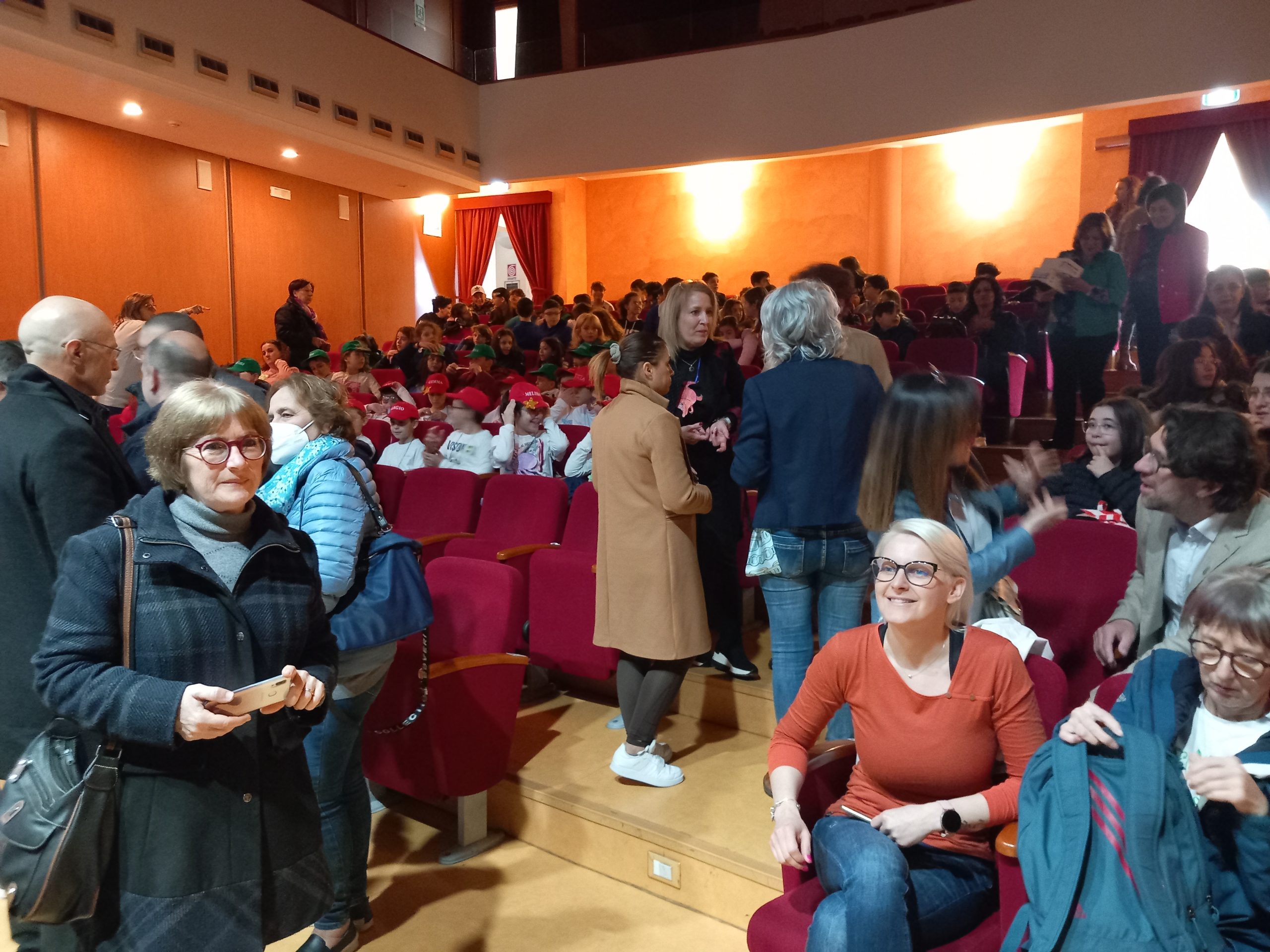
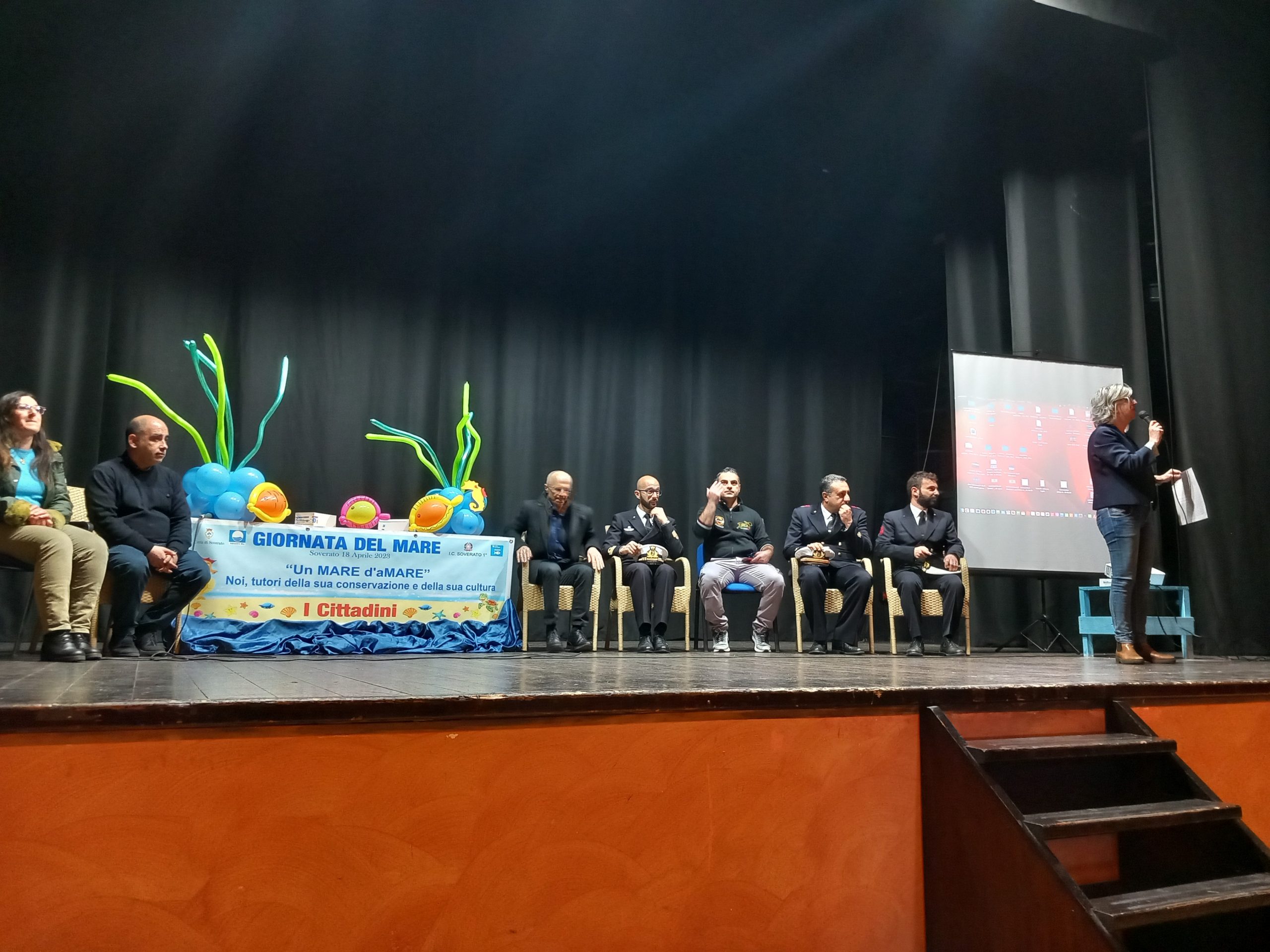
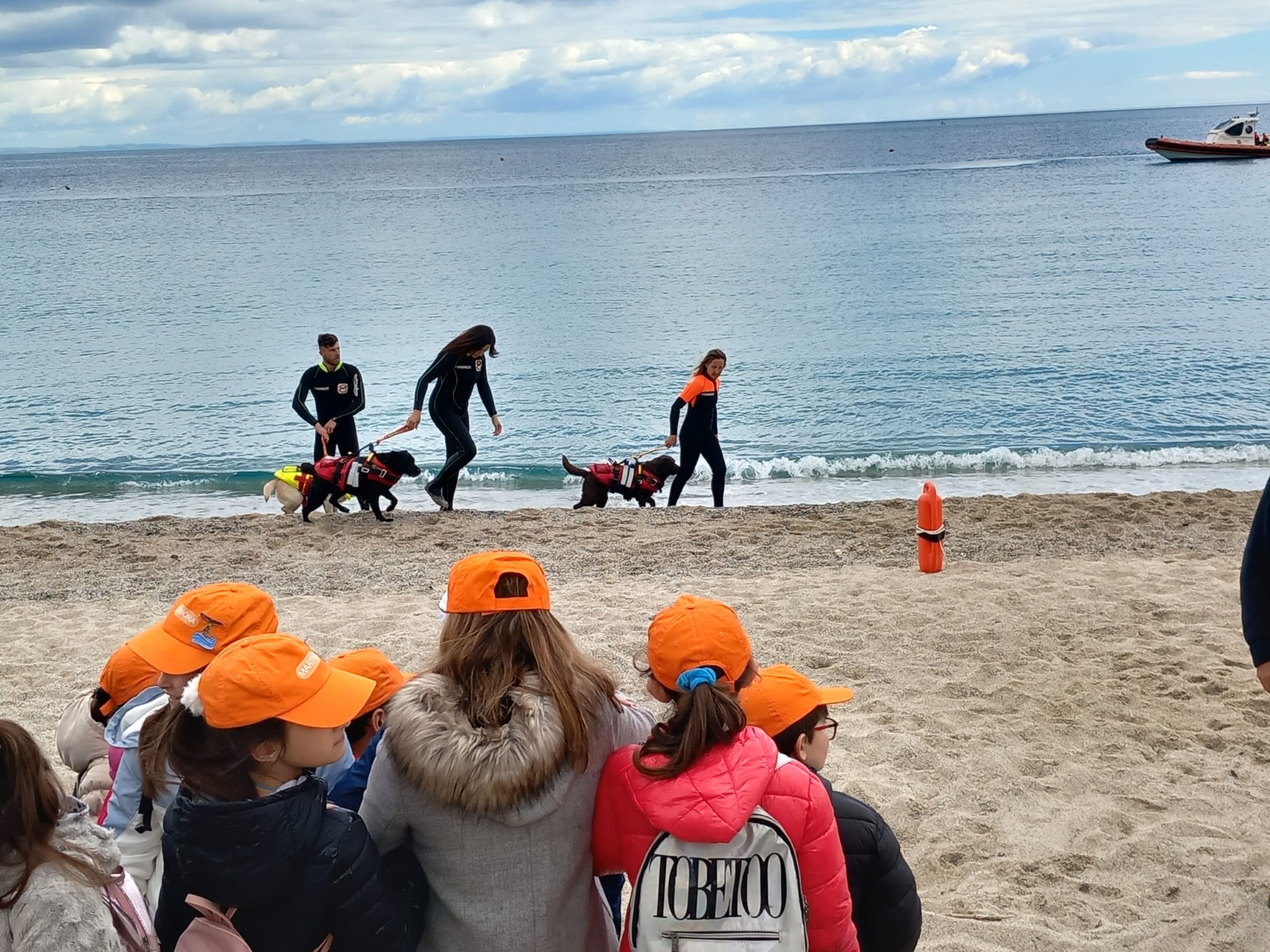
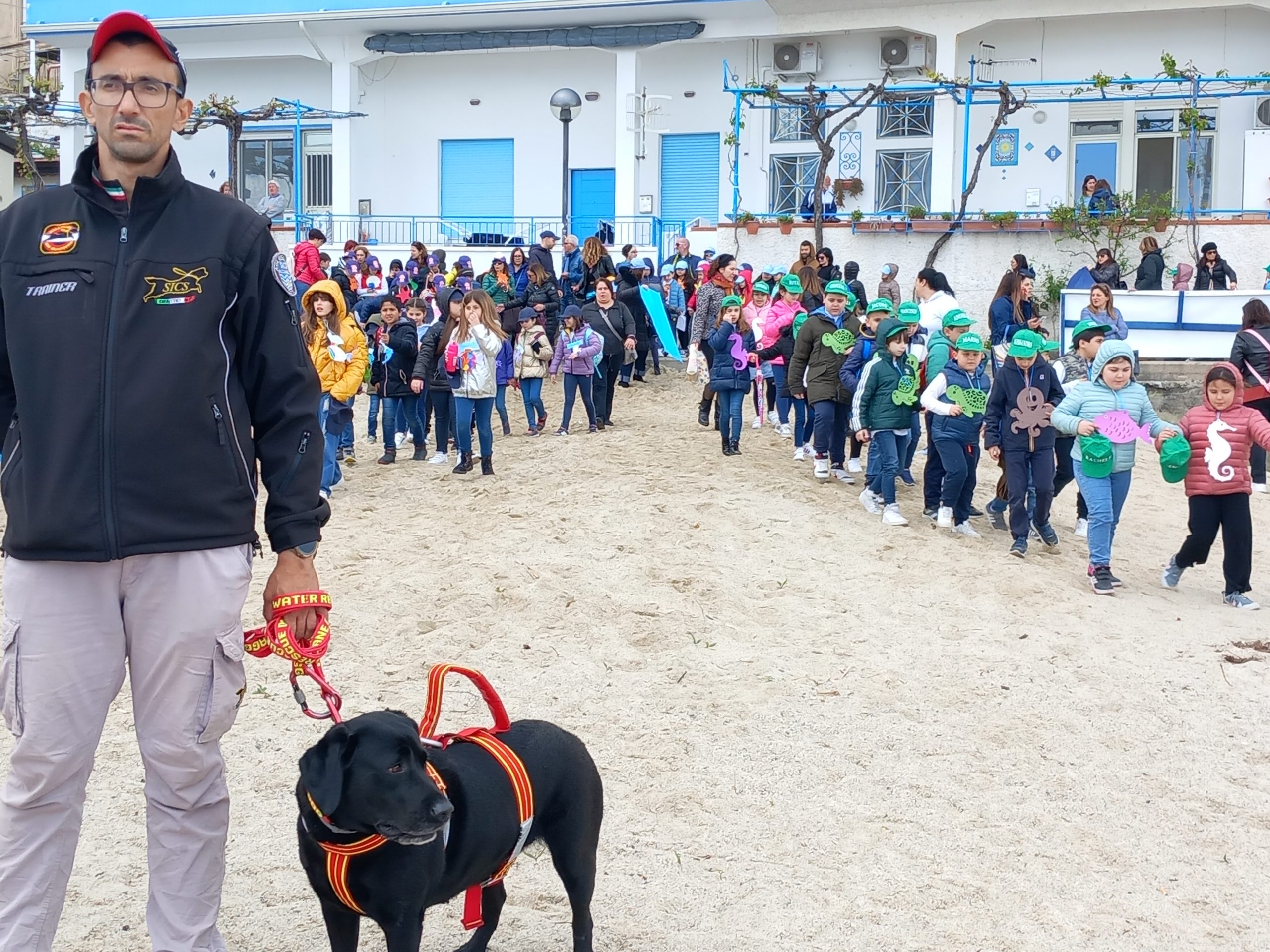
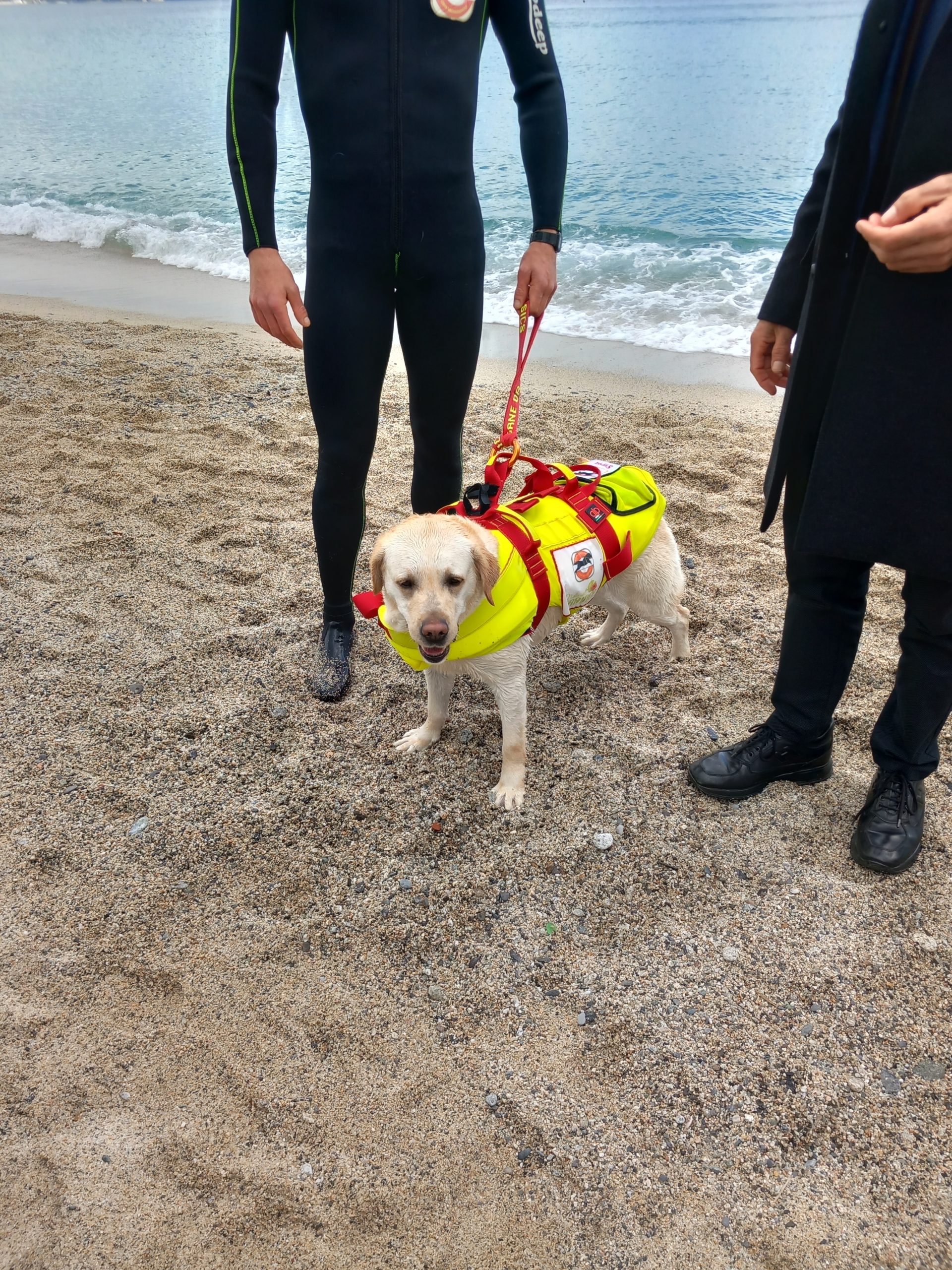
LOCCAR (Local Communities’ Climate Adaptation and Resilience)
According to the Green Agenda for the Western Balkans (2020), the Western Balkans is recognized as one of the regions in Europe most heavily affected by climate change. In addition, climate risks are not sufficiently covered at the local level in the documents and activities implemented. Still, there is no understanding that climate change (heatwaves, droughts, wildfires, coastline erosion, rising sea levels) affects not only the environment but also the local economy and the health of the population, due to a lack of awareness raising among the local population. In its report for Western Balkan countries, European Commission in 2021 stated that they must align with the EU Strategy on Adaptation to Climate Change.
The project Local Communities’ Climate Adaptation and Resilience (LOCCAR) aims to assist local authorities in better understanding, preparing for, and managing climate risks, as well as developing innovative solutions to build resilience. The project will also contribute to establishing sustainable regional cooperation in building climate resilience in the Western Balkans, having in mind that efficient cooperation mechanisms among neighboring countries in the focus of this project (Serbia, Montenegro, and Bosnia and Herzegovina) are missing, even though the transboundary nature of climate-related risks at the local level is reality.
The objective of LOCCAR project is to accelerate climate change adaptation on the local level in Western Balkans through enhancing Civil Society Organisations (CSOs) role in the transformation towards climate resilience, by empowering CSOs visibility in policymaking, raising awareness of local decision-makers on the impacts of climate change on the local communities and supporting sustainable regional cooperation in building climate resilience in the Western Balkans.
A regional round table with the participation of main stakeholders from all three countries will be organized at the end of the project. Based on consultations with selected municipalities, Brochures/Guidelines for the local decision-makers on climate change adaptation in local strategic and policy documents will be prepared and distributed. It is expected that in total 9 selected municipalities in two rounds of meetings with municipalities.will provide their contribution. Using the digital dissemination of the Brochure/Guidelines via websites and digital platforms (Facebook, Instagram, LinkedIn, Twitter) of the 3 CSOs and 9 municipalities, a significant portion of the population in Western Balkans will be reached with the Joint Project’s outputs.
Project partners are Center for Climate Change, Natural Resources and Energy of the University of Donja Gorica (leading partner, Montenegro), a Resource Center for the Environment REC BIH (Bosnia and Herzegovina), and Environmental Ambassadors for Sustainable Development (Serbia).
LOCCAR project is financed by the Western Balkans Fund and co-financed by the EU in the frame of IPA.
Final LOCAL project publication (- Jačanje otpornosti i kapaciteta prilagođavanja lokalnih zajednica na klimatske promjene u Crnoj Gori, Bosni i Hercegovini, Centar za klimatske promjene, prirodne resurse i energiju Univerziteta Donja Gorica, Podgorica, juli 2023 )
Study visit to Grenoble – the Green Capital of Europe
Within the project “Pulse of Europe – EU media visits“, funded by the European Union in Serbia, the President of the Environmental Ambassadors for Sustainable Development, Aleksandra Mladenović, had the opportunity to participate in a study visit with a group of journalists from Serbia. They had opportunity to find why Grenoble is the Green Capital of Europe in 2022.
The Green Capital of Europe Award has been given since 2008 to cities with more than 100,000 inhabitants committed to sustainable urban development. Awarded cities provide an example to other cities to encourage them to use resources on sustainable way, and to preserve the environment for all. So far, 13 cities have received the award, including, from region, Ljubljana, the capital of Slovenia, which was awarded in 2016.
During the visit to the mayor of Grenoble, special emphasis was placed on sustainable development – the city administration is committed to sustainable development, equally observing and respecting all three pillars: the environment, economic opportunities and social conditions. They provide great support to companies that base their development on the sustainable use of resources, but assistance is also given to residents who decide to become more energy efficient, or switch to using one of the available types of renewable energy sources.
Grenoble has several “Eco-districts”, which is a national label for parts of the city that are developing on the principles of sustainable development. Thus, in the “Cambridge Eco-district” there are two ABC (“autonomous” and self-sustainable) buildings with 42 apartments that receive energy from their solar and high voltage panels. Water is recycled from rainwater, residents make compost, they have an artificial lake available for relaxation and entertainment, but also a red light in the shower as a warning if they use it for too long. This “Eco-district” is being developed in harmony with the mountainous environment of Grenoble, using geothermal energy for the irrigation system. Both older and young people who are living in ABC buildings say they are very happy and satisfied to be volunteers who will live in these buildings for five years, as in some kind of experiment. At the end of this experimental period, the degree of sustainability of this way of life and use of resources will be evaluated.
“Eco-District Flaubert”, for example, has three hectares of parks, which are a trademark of the city, and buildings are built of natural materials (woods, for example). Residents have opportunity to participate in planning the look of buildings (this is the case with future schools, for which students and teachers were interviewed and who gave suggestions on what kind of school they would like to get). Such buildings have gardens on the roofs, which are taken care of by the residents, who grow a variety of fruits and vegetables.
Grenoble also has companies dedicated to environmental protection and sustainable use of resources. Thus, the building in which Schneider Electric operates is a “net zero energy building” – they produce energy as much as they need, by solar panels and wind farms. Also, the Local Energy and Climate Agency in the city of Saint-Martin-d’Heres, located near Grenoble (both cities, together with 47 other “cities” make up the Grenoble-Alps region) helps citizens to participate in the insulation of buildings in which they live, allowing them to pay smaller heating bills.
Through the “Wall-Wall” program, the insulation of 202 residential buildings (almost 10,000 apartments) has been done since 2010. Homeowners are offered favorable loans for up to 20 years of repayment. Citizens of Grenoble can also get involved in initiatives that support the production of energy from renewable sources, such as Énerg’Y Citoyennes. This company enables the production of electricity from solar panels in 10 municipalities in the Grenoble area, and among 364 interested parties, the largest number are citizens.
Biodiversity protection and nature-based solutions in focus of EASD activities
Concept of nature-based solutions implies searching for existing, sustainable solutions from nature in order to provide benefits for both human well-being and biodiversity, by addressing societal challenges. There are different solutions mapped so far and implemented in different areas and environments, such as protection, restoration or management of natural and semi-natural ecosystems; the sustainable management of aquatic systems and working lands such as croplands or timberlands; or the creation of novel ecosystems in and around cities. All solutions are designed to be implemented by local communities and related institutions and organizations (towards implementation of United Nations Decade of Ecosystem Restoration 2021-2030)
EU Biodiversity Strategy to 2030, represents a comprehensive plan under the European Green Deal, which serves to improve state of the nature in European Union, by protecting biodiversity and reversing the degradation of ecosystems. In the focus of this Strategy is increasing the area under protection for at least 30% of both land and sea in Europe, restoring degraded ecosystems and securing 20 billion EUR/year for biodiversity through various sources, including EU funds, national and private funding.
The main challenge in the region of Western Balkan, area with outstanding biodiversity, natural resources and huge number of solutions created by nature, is to set up Green Agenda and Biodiversity for the Western Balkans as important as all other Development Agendas. In 2017, the Biodiversity Task Force of South East Europe was established to serve as a technical and advisory body of the Regional Working Group on Environment (RWG Env) of the Regional Cooperation Council. The most important objective for Western Balkans in Green Agenda implementation is to mainstream biodiversity elements in other policy areas in order to improve state of protected areas (through sustainable financing), increase number of protected areas and increased surface area under protection, as well as to improve the status of the endangered species. In addition, these actions will lead to protect, restore and manage natural and semi-natural ecosystems; to establish sustainable management of aquatic systems and working lands, but also will provide different solutions and possibilities for creation of novel ecosystems in and around cities. The strategic Green Agenda for WB document will identify priorities to focus on, while the implementation would require synchronized actions and involvement of the entire region, by strengthening regional cooperation and involvement of all relevant institutions and organizations, in order to promote and implement nature-based solutions.
Biodiversity and nature protection are among EASD priorities in last ten years, reflecting in conference proceedings[1][2] , contribution to Study on Achievements and Perspectives towards a Green Economy and Sustainable Growth in Serbia, or training providing on ecological footprint. One of the priorities of EASD focus is education on importance of biodiversity protection, which is implemented mainly through the Eco-schools Serbia network. In the period 2017-2020, under the project The Great Plant Hunt biodiversity topic is introduced in Eco-schools Serbia network and started with implementation of the nature-based solutions concept.
From February 2022, EASD started to implement within Eco-schools Serbia network an Erasmus+ project ForLife , with leading partner from Slovenia, and another partner from Italy. This project is directly connected to nature-based solution concept, by using positive examples from nature, regarding promotion of protection, restoration or management of natural and semi-natural ecosystems and in the same time creation of novel ecosystems in urban and sub-urban areas where Eco-schools belong to.
ENV.net
ENV.net project consists of ENV.net 1/2 (2012-2016) and ENV.net 3 (2017-2020) projects. EC supported
ENV.net 1/2: ENV.net – Development of ENV.net in West Balkan and Turkey: giving citizens a voice to influence the environmental process reforms for closer EU integration, EuropeAid/132438/C/
ACT/Multi – 2012/306-642 and 2014/351-610; Partners for project implementation are: Puntosud , EASD , Co-PLAN , EEB – European Environmental Bureau, ATRC and TEMA . The project builds on the experience of an EU-funded project, namely the Environment Forum, implemented in the period 2009-2012, aiming at developing capacities of environmental NGOs to establish a constructive dialogue with national authorities. The present project strategy has been designed to achieve a greater commitment and capacity of a group of CSOs coming from Environment Forum experience and which have agreed on the creation of a new network, the ENV.net, to support the civil activism, give citizens a voice and influence the public reform processes in the approximation to the environment acquis. With the view to further enhance their capacities to work with CSOs and to share experience with other European countries, EEB has accepted to participate and to share its experience. Project objective – Greater commitment and capacity of the ENV.net to give citizens a voice and influence public sector reform processes in the environment sector through analysis, monitoring and advocacy. As one of the outcome National ENV.net networks (to complement Regional ENV.net network) were established; established ENV.net Network in Serbia have 54 organizations (multistakeholders).
ENV.net3: “ENV-net factoring the environmental portfolio for Western Balkans and Turkey in the EU Policy Agenda” – EuropeAid/154870/ACT/Multi ; EASD (Serbia) partners for project implementation are: 4X4X4 Balkan Bridges from North Macedonia, European Environmental Bureau from Belgium, Advocacy Training and Resource Center, from Kosovo*, Green Home, from Montenegro, Lir Evolution, from Bosnia and Herzegovina, TEMA – the Turkish Foundation for Combating Soil Erosion, for Reforestation and Protection of Natural Habitats, from Turkey and Foundation Punto,Sud, from Italy. The project contributes to the improvement of environmental policy-making and implementation in compliance with the EU standards. To this end, the network foresees to contribute to both improved and intensified inter-action among actors (including environmental CSOs, media and policy-makers) and an overall more enabling technical and financial environment where these actors operate. The action sets out to strengthen the profile of ENV.net as the leading network and bridging actor in environmental policy-influencing in the WB and Turkey region (vis-à-vis EU). Further, it foresees introducing and initiating a discussion on the Circular Economy concept in the region, as well as intensifying climate change actions. The action also foresees a number of value-adding, cross-cutting elements such as inter-partner learning/exchange, networking, and thematic organisational support to third parties (i.e. local grass-root organisations, media).
____________________________________
Paper published: Andjelka Mihajlov, Aleksandra Mladenovic & Filip Jovanovic, Contribution to Environmental Communication: comparative analysis of two qualitative methods as the performance to European Union accession, in “Adapt to Survive. The role of social media, sharing and communication to ameliorate this world “, Conference Proceedings Book Edited by Margarita Kefalaki, Communication Institute of Greece (COMinG),Athens, p.57-66 , 2021 ( ISSN: ISBN: 978-618-85622-3-3 ), Available at https://coming.gr/wp-content/uploads/2021/12/1_1_2021_Adapt-to-survive_Book_conf-proceedings_COMinG.pdf
Selected activities:
March 2021:
Information paper on Climate Change and Energy
Information paper on Climate Change and Floods
August 2021: Environmental Communication: Media Archive Reports as a Participant Science Tool
Promotion by media (Da li smo spremni za sve češće poplave?)
December 31, 2020: ENV.net3 project final steps – infographics with documents developed by EASD
____________________________________
Report on monitoring the progress of national environmental legislation (Chapter 27) in 2018, 2019, and half-year 2020, with projections through end-2020 / Izveštaj o monitoringu napredovanja nacionalnog zakonodavstva o životnoj sredini (Poglavlje 27) u 2018., 2019. i prvoj polovini 2020. godine, sa projekcijom do kraja 2020.godine (Extended abstract in English, Full text in Serbian)
Position Paper on COVID 19 and waste management
Circular Economy goes beyond Waste Management presented at EurAsia Waste Management Symposium 2020
Information paper on meaning of Cluster “Green agenda and sustainable connectivity” for Serbia
Reflection paper on air quality data for Serbia
2020 Spotlight Report on Circular Economy in Serbia
EASD publication on circular economy acknowledged by European Circular Economy Stakeholder Platform
Virtual tour on the experience from Italian practices in circular economy
November 2020: Joint civil society statement for Sofia Summit
EASD research presented at EurAsia Waste Management Symposium
October 2020, New Momentum for the Environmental Agenda in the Western Balkans and Turkey?
Establishment of the South East European Platform to Beat Pollution – SEEPP
Recap the moments from EnE19/ENV.net Conference
March 2019: UN Environment : 4th Assembly (and pre- and side-events) , ENV.net related event
November 2018: To report: The first Regional Conference on Circular Economy was success ; The first regional conference on circular economy, Belgrade, November 2018: Agenda
Call for sub-grants (6.novembar 2018: Otvoren poziv za dodelu sub-grantova u okviru ENV.net projekta)
YRE competition: apply before February 1, 2019.; Theme: Energy Efficiency
ENV.net Initiative: to update National Strategy on Sustainable Use of Natural Resources and Goods, by applying Circular Economy concept ; ENV.net Initiative and Knowledge based advocacy: to update National Strategy of Sustainable Use of Natural Resources
Circular economy knowledge based advocacy in Eco-schools network in Serbia
May 2018. Guest lectures made at two Universities in Serbia: “Circular economy is concept and process, and still not full circle” ; Participation at the Green Parliamentary Group meeting
Follow project at : facebook.com/envnetsite/ and www.env-net.org
February 2018 – ENV.net 3 Kick-off Meeting in Tirana
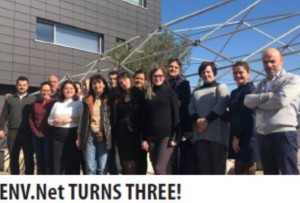 ________________________________________________
________________________________________________
In December 2017. we started with ENV.net 3 : ENV-net factoring the environmental portfolio for Western Balkans and Turkey in the EU Policy Agenda (reference number 2017/394-372)
ENV.net 3 – Serbia team include: Aleksandra Mladenovic –National Coordinator and Manager. In addition, Thematic experts/consultants, on demand, are Prof dr Andjelka Mihajlov and Filip Jovanovic, and Media communication expert, on demend, is Milica Momcilovic.
________________________________________________________________________________
Development of ENV.net in West Balkan and Turkey: giving citizens a voice to influence the environmental process reforms for closer EU integration – EuropeAid/132438/C/ACT/Multi – 2012/306-642 and 2014/351-610 (2012-2016)
The project builds on the experience of an EU-funded project, namely the Environment Forum , implemented in the period 2009-2012, aiming at developing capacities of environmental NGOs to establish a constructive dialogue with national authorities. The present project strategy has been designed to achieve a greater commitment and capacity of a group of CSOs coming from Environment Forum experience and which have agreed on the creation of a new network, the ENV.net, to support the civil activism, give citizens a voice and influence the public reform processes in the approximation to the environment acquis. With the view to further enhance their capacities to work with CSOs and to share experience with other European countries, EEB has accepted to participate and to share its experience. Project objective – Greater commitment and capacity of the ENV.net to give citizens a voice and influence public sector reform processes in the environment sector through analysis, monitoring and advocacy.
Partners for project implementation are: Puntosud , EASD , Co-PLAN , EEB – European Environmental Bureau , ATRC and TEMA . EASD Activity circles represent the scope of our activities.
Project launched site for presentation of activities in all participating countries, as well as facebook page and ENV.net Newsletters.
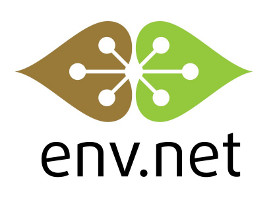 ENV.net 1/2– Serbia team include: Dr Nataša Žugić Drakulić –National Coordinator and Filip Jovanović – project manager , chosen in transparent process by „ Environmental Ambassadors for Sustainable Development“, partner organisation in this project. In addition, National consultant for European integration is Prof dr Andjelka Mihajlov , dr Hristina Stevanović Čarapina is leading expert .
ENV.net 1/2– Serbia team include: Dr Nataša Žugić Drakulić –National Coordinator and Filip Jovanović – project manager , chosen in transparent process by „ Environmental Ambassadors for Sustainable Development“, partner organisation in this project. In addition, National consultant for European integration is Prof dr Andjelka Mihajlov , dr Hristina Stevanović Čarapina is leading expert .
__________________________________
ENV.net Serbia network is functioning : Some of activities could be followed only in Serbian, like calls to participate, and other actions targeted to citizens in Serbia.
**************************************
Highlights: ENV.net publications
- A Guideline of EU Accession Monitoring Tools for CSOs in candidate and potential candidate countries: Chapter 27, (Authors and contributors: Andjelka Mihajlov, Natasa Zugic-Drakulic, Filip Jovanovic, Federico Bastia, Simona Pogliani, Mara Silina, Teida Shehi and Dusko Hristov), Published by Environmental Ambassadors for Sustainable Development with the financial assistance of the EU – ENV.net project document, Belgrade January 2015
- How to influence environmental policy through effective advocacy (Authors: Margherita Tolotto and Mara Silina), ENV.net Advocacy Toolkit, European Environmental Bureau, Brussels, January 2015
- Climate change and challenges of the enlargement (Authors: Anja Kolmuss, Dragana Mileusnic, Zanna Vanrenterghem and Richard Filcak), ENV.net Advocacy Toolkit, European Environmental Bureau, Brussels,September 2016
June 2016: Agenda, WED Messages from Serbia: 12th Regional Conference “Environment to Europe” , REPORT FROM EnE16-ENV.net, BELGRADE, SERBIA
April 2016 – ENV.net Course: CSO Participation in Accession Process , Chapter 27: CSOs participation
March 2016 – New internet portal: Greenweb
January 2016 – Save the date for EnE16-ENV.net Conference ; We participate: Regional Conference: „Sustainability of the FPAs” , Brussels . Water-food-energy-ecosystems nexus assessment in the Sava River Basin – Lessons learned and further steps
October – December 2015 – Ministry support to ENV.net , Event
October – Partnership for Climate Change issue : Serbia’s climate talks – on the way to Paris
June 11 – European Commission Vice-President Mr Maroš Šefčovič had meeting with CSOs in Belgrade. EASD participate!
June 7 – Bicycling-ENV.net promotion in town Gornji Milanovac , Green day in Gornji Milanovac
June 5 – Regional Conference ”Environment to Europe” EnE15 – ENV.net EU Environmental Horizontal Legislation: Methods, Standards and Tools , Invitation , AGENDA , Proc. of papers
May 26, 2015 – Promotional activity
April 21, 2015 – Participation in Public Hearing on Climate Change related challenges in Republic of Serbia
April – THE ELEVENTH REGIONAL CONFERENCE ENVIRONMENT TO EUROPE – ENE15 – ENV.NET acknowledged as the European Sustainable Development Week event
March 22 – Celebrating the World Water Day in Serbia: field visit to Ada Ciganlija
February 2, 2015: Invitation for EnE15-ENV.net Conference launched
January 29, 2015: A Guideline of EU Accession Monitoring Tools for CSOs in candidate and potential candidate countries (ENV.net region): Chapter 27 , document finalized
January , 2015: Promotion of Publication
December 31: Thematic Publication “Environment to Europe”, 2014 ( Tematski zbornik radova “Životna sredina ka Evropi”)
December 12: ENV.net Serbia Seminar: Environmental Education in Schools
November 24-25, ENV.net on the margins of ECF Annual Meeting in Brussels with European Commision
November 4-5 , Regional training on the process of designation of potential Natura 2000 sites
October 30 – Conference “EU accession in the field of environmental protection and the role of local authorities”
October 28 – Ministry of Agriculture and Environmental Protection is co-funded ENV.net project , contract signed
October 22-23, Belgrade: ENV.net training: “EU project design process and Implementation of environmental policy”, Invitation , Agenda , Training
October 2014 – ENV.net brochure published and presented
October 14 – ENV.net related: Participation on Conference “Eco-standards and Education”
October 8 – “Little progress has been made in the areas of environment and climate change”
September 29 – ENV.net Round-table Dialogue for Green Future (ENV.net okrugli sto sa niškim srednjoškolcima “Dijalogom ka zelenijoj budućnosti“) (sub-grant)
September 23-25, Brussels: ENV.net preparatory partnership meeting and Framework Partnership Agreement (FPA) Closing Event for Phase I
September 19-24 , We are following Explanatory Screening for the Chapter 27
August 29 – ENV.net (sub-granting) publication published PUBLICATION : “Species of plants and animals of special conservation concern in EU” , in Serbian
July 27 – Partnership with media – Radio Beograd 2
June 19 – Eco-package initiative as the example environmental education for the future EU citizens
June 5 – CONFERENCE , ENV.net multi-stakeholder Conference on Chapter 27: about 200 participants
June 4 – Meeting with media , Moments from the Conference for Media
May 29, 2014 – ENV.net Serbia Conference organisation on the good track –Agenda for EnE14/ENV.net Conference “Environment to Europe”, June 5, 2014 in SCC – opening at 10:00
May 22-24, 2014 – 4th Partners Meeting in Milan
May 13, 2014 – European Solar Days – participation in promotion of EU environmental values
May 10, 2014 – ENV.net Let us clean up Europe! event: Ada Ciganlija Beograd ; ENV.net Serbia with children, parents and teachers “cleaning up Serbia” , Event in pictures
May 22-24, 2014 – 4th ENV.net Partners Meeting in Milan
May 7-8, 2014 – Some of ENV.net Partners meet in the corridors of ECRAN ECF Meeting
April 25, 2014 – UNEP acknowledged EnE14-ENV.net 2014 Conference as the World Environmental Day Event
April 5, 2014 – Education for future citizens of EU: guest lecturing at the Law Faculty
April 4, 2014 – EU Delegation to Serbia: Consultative Meeting with CSOs on progress towards EU in 2014
Aprl 4, 2014 – We participated to the meeting related to EU-Serbia Civil Society Joint Consultative Committee – JCC
April 2, 2014 – ECRAN NGOs Environment and Climate Change Forum – Evaluation Outcome – Congratulation to ENV.net partners!!!!
April 1, 2014 – Protego and Protecta sign subcontracting contracts
Marc 20-9, 2014 – EASD written contribution to the 2014 Progress Report
March 25, 2014 – Participation on UNECE consultation related to the 3rd EPR for Serbia
March 23, 2014 – ENV.net sub-grants winners announced , ENV.net
March 20, 2014 – We participate on Panel at Faculty of Organisation Sciences – University of Belgrade : Knowledge about Environment
March 9, 2014 – Technical (formal requests) evaluation of sub-grants application finished: 45 projects eligible for further evaluation
March 6, 2014 – Promotion of global activity EARTH HOUR (Marh 29, 20:30-21:30) and call for participation
March 4-6, 2014 – We participate in Zagreb on Workshop on Water-Food-Energy-Ecosystems Nexus Assessment in the Sava River Basin
From February 2014 – EU negotiation process: we are following explanatory screenings
February 26, 2014 – In accordance with procedure, QUESTIONS by potential applicants with our ANSWERS are posted on web site on February 26, at 07:00 , taking in account questions received by February 25 at 23:59
February 20-21, 2014 – EASD-ENV.net Serbia participated in defining the first strategic framework for CSOs development
February 18,2014- Knowledge based advocacy: Environment should be within priorities in the negotiations with EU
February 13, 2014 – Environment in youth policy in Serbia
February 12, 2014 – Meeting with ENVAP2 Project representatives
February 7, 2014 – Participation on Training related the Sector Planning Documents – SPDs
February 1, 2014 – Call of proposals for ENV.net sub-granting in Serbia “EU: we watch and learn to be ready!”
January 30, 2014 – Participation on public hearing by the European Economic and Social Committee (EESC) Study Group
January 30,2014 – Thematic meeting of the SECO mechanism on IPA II programming
January 30, 2014 – Participate in the Mapping of CSOs and other stakeholders in in the process of EU accession negotiations
January 19, 2014 – EASD / ENV.net Team reading of European Parliament Resolution, January 2014
January 07, 2014 – Starting preparation for ENV.net 2014 Round-table / Conference
January 2, 2014 – Attention to ENVIRONMENT in EUROPA DAIRY
_______________________________________________________________
December 23, 2013 – Workshop on environmental values for kindergarten children from Sombor (Minutes) , Participation on meetings in Nature Protection Institute and Agency for Environmental Protection
Decembar 20, 2013 – In media : Promotion of knowledge based information
December 20, 2013 – Environmental Education for future EU citizens , Minutes
December 17, 2013 – ENV.net region news: European Affairs ministers give green light to Serbia’s EU negotiations
December 16, 2013: Workshop for strategic planning of further work SECO mechanism
December 3, 2013 – ENV.net presented to the master students of Faculty of Security Studies
December 2, 2013 – Eye on EU integration process: Parliament of Serbia , Eye on SEE regional cooperation
November 28, 2013 – Meeting FPA project grantees with DG Enlargement representative
November 25, 2013 – Partnership with Media : Partnership agreement with Journalist’ Association of Serbia
Environmental Education of future EU citizens: Activity on November 19,2013
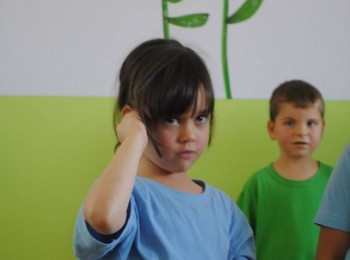 |
Acknowledging the outreach of ENV.net Survey and ENV.net 2013 Roudtable recomendations, EASD – ENV.net Serbia recognized importance of children/youth education for active EU citizenship , through promotion of EU environmental values. We would like to share moments from kindergarten “Pčelice”, from village Šetonje, as promotion event for environmental values in education. With children and teachers, as well as EASD Team, there were Prof dr Ivica Radovic and mr Ljubiša Antonijević, assistant ministers for education and science. |
Partnership with municipality – On November 18., 2013, ENV.net project presented on the Round table in Municipality Vračar (within City of Belgrade).
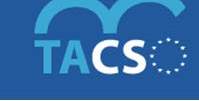 Cooperation with TACSO Serbia – On November 15. 2013, in Belgrade, TACSO Advisory Committee (LAG) organized a consultative meeting with representatives of civil society organizations and networks and Serbian civil society expert community. At the meeting a draft of a document on the assessment needs of civil society in Serbia was discussed.
Cooperation with TACSO Serbia – On November 15. 2013, in Belgrade, TACSO Advisory Committee (LAG) organized a consultative meeting with representatives of civil society organizations and networks and Serbian civil society expert community. At the meeting a draft of a document on the assessment needs of civil society in Serbia was discussed.
 EASD prepared Opinion and contribution to the Draft Strategy Paper for the Republic of Serbia 2014-2020. Through SECO mechanism opinion is sent to Governmental Office for European Integration. Opinion is based on Serbia 2013 Progress Report and Strategy – Reading by ENV.net Serbia Team .
EASD prepared Opinion and contribution to the Draft Strategy Paper for the Republic of Serbia 2014-2020. Through SECO mechanism opinion is sent to Governmental Office for European Integration. Opinion is based on Serbia 2013 Progress Report and Strategy – Reading by ENV.net Serbia Team .
Organisation capacity building process: EASD acknowledged becoming IPEN network Participating Organization
Eye on environmental laws changes: monitoring compliance with EU directives
November 2013. – The third ENV.net partnership meeting in Milan
28. October – Meeting with European Parliamentarians
ENV.net Serbia Team prepared document: Reading of 2013 Progress Report for Serbia and Strategy by ENV.net Serbia Team ( Serbia 2013 Progress Report and Strategy – Reading by ENV.net Serbia Team ).
____________________________________________________
22. and 23 October – Education on sustainable management of lead/chemicals
October 18 – EC Delegation in Serbia, present to relevant CSOs, on October 18, 2013 , Serbia Progress Report 2013, in which the Commission services present their assessment of what Serbia as the candidate country has achieved over the last year.
October 2013 : Participated on different events organized to raise awareness to EU approximation environmental challenges.
Promotion of ENV.net facebook page!
October 2, 2013 – ENV.net team participated at the First SEE Regional Science Promotion Conference (SCIPROM), opened in Belgrade, with the aim to bring together science promotion professionals, practitioners and enthusiasts to share experience and network in order to strengthen the link between science and society in our Region. In the current competitive global environment it is an imperative to enhance economic and social capacities by improving the educational structure of society, inspiring innovation and technological advancement and creating a milieu for appreciation of the value and benefits of knowledge. In the opening address, Minister for Education, Science and Technology development of Serbia underlined, among others the importance of knowledge based actions, as well as the importance of drinking water for development. Conference bring international experts and representatives of international organizations, research and educational institutions, science camps, science communicators, NGOs, private sector and media on board.
This conference justify the path of ENV.net Serbia implementation and development, linking European Integration, Knowledge based activities and sectors : Education, Science and Environment/Natural Resources.
____________________________
Waste management and water management are considered as two important segments of environmental acquis and studies in this area represent an important aspect of ENV.net project. Environmental accession status of Serbia ( waste , water and EIA thematic issues) was presented by EASD team at International Conferences in Vienna (Austria) and Zadar (Croatia), as well as on chemicals at SAICM Regional Meeting (Skopje, Macedonia FYR).
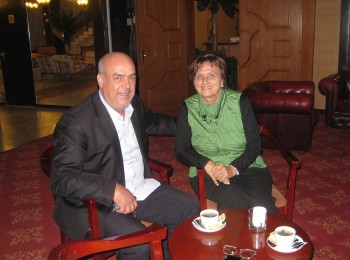 In addition, possible ENV.net partnerships are discussed with other participants and interested CSOs.
In addition, possible ENV.net partnerships are discussed with other participants and interested CSOs.
In Skopje, EASD representative met Macedonian 4x4x4 BB representative on September 26, 2013, to discuss possible enlargement of ENV.net project to Macedonia.
________________________________________
Promotion of ENV.net site in place Join us!
Added value for ENV.net Serbia is EASD activities within the development of Post-Rio+20 Agenda.
Office for Cooperation with Civil Society organized on September 6, 2013 Conference devoted to negotiating Chapter 27 (Environment). Presentation (in Serbian) from the Conference includes: Poglavlje 27 pregovori, Iskustvo R Slovenije, Natura 2000 Ministarstvo, Uloga civilnog drustva u monitoringu, Natura 2000 NGO )
September 2013: ENV.net project presented in the Ministry of Education, Science and Development of Serbia (Meeting of the National Committee for Environmental Education Programs)
August 2013. – Snapshot analysis : While waiting for EC 2013 Progress Report
___________________________________________________________________
ENVIRONMENT TO EUROPE – EnE
This project/process present different phases towards European values, as well as globally values promoted through Multilateral Environmental Agreements. Started to raise awareness of the importance of the UNECE Ministerial “Environment for Europe” Belgrade 2007 Conference, and further continuously is mobilizing interesting parties in Serbia and Region to catalyze environmental and sustainable development.
Within “Environment to Europe” Process, EASD actively participate and organize different supporting activities in different related thematic areas, like sustainable consumption and production, efficient resource use, chemicals, eco-consumers protection, participation at global, EC, regional and with papers at different conferences, etc. Regional cohesion projects supported Environment to Europe process.
__________________________________________________
EEB 2022 ANNUAL CONFERENCE – “Boosting the Deal for a Greener Europe in Turbulent Times”
Study visit to Grenoble – the Green Capital of Europe
EnE22, June 2022 – UNEP@50 and World Environment Day
December 2021 – Climate Pact for Serbia: Snapshot targeted rehearsal of country’s obligations in climate action….
Virtual tour on the experience from Italian practices in circular economy
Recap the moments from EnE19/ENV.net Conference
WEBINAR – Regional Forum of Sustainable Development (RFSD) for the UNECE Region : we participate
EASD full member in European Environmental Bureau – honor and challenge
The ESDN Conference 2018 – we participate ; We participate – ESDN Conference 2018, “Stakeholder-Policy Cooperation in the Age of the SDGs: What new approaches are required to be successful?”, Vienna (Austria), 1-2 October, 2018
Join us for June 5th: Conference Agenda is available
6th UN regional meeting on SAICM, Poland, February 2018: we participate
February 2018: Call for participation for EnE18: Nature protection – Nature-Responsive Development
February 2018: ENV.net 3 Kick-off Meeting in Tirana
November 2017: EASD participate: Summit to Plan the End of Amalgam in Europe 2017– November 20-21, Berlin
September 2017: “Make Mercury History” – EASD participated at Minamata COP1 in Geneva
July 2017: Civil Society Forum in Trieste, 11-12 July 2017 – we (EASD) participate ; Good signal: Serbia gets (again) separate Ministry of environmental protection
June 2017: Climate Change Education for Sustainable Development
April 2017: Call: The Thirteenth Regional Conference ”Environment to Europe – EnE17″, June 5th 2017, Belgrade
February 2017: “EnE17 – The 13th Regional Conference Environment to Europe” announcement: Climate Change Education
June 2016: Agenda , EnE16-ENV.net Zbornik radova/Proceedings of papers ; WED Messages from Serbia: 12th Regional Conference “Environment to Europe” , REPORT FROM EnE16-ENV.net, BELGRADE, SERBIA
January 2016 – Save the date and participate: June 6, 2016 – Environment to Europe Conference
June 5, 2015 – 2015 Conference, Information, Proc. of papers
We participate at European Green Week
December 2014 – Thematic Publication “Environment to Europe” ( Tematski zbornik radova “Životna sredina ka Evropi”)
June 5, 2014 – ENV.net multi-stakeholder Conference on Chapter 27: about 200 participants , 2014 Conference
Agenda for EnE14/ENV.net Conference “Environment to Europe”, June 5, 2014 in SCC – opening at 10:00
Invitation for EnE14-ENV.net Conference, June 5 – 2014 in Belgrade
EnE14 / ENV.net Conference will be held on June 5, 2014 in Belgrade (it will 10th regional conference!). Thematic focus: Chapter 27. Reserve the date! More information soon. Follow the updated information related to event.
__________________________________________________
EnE13 – Environment to Europe Conference on June 10, 2013 is focused on local environment. The main messages from this participatory ENV.net event are: environmental sector activities should be knowledge based, and education for environment and sustainable development should be priority. Capacities and continuity is very important for inclusion environment in other sectoral policies. Conference is institutionally supported by Ministry of Energy, Development and Environmental Protection and Ministry of Natural Resources, Mining and Spatial Planning, as well as National Commission for UNESCO. This Conference is UNEP WED event.
| 2013 | EnE13 | ENV.net Roundtable Focus: Local Environment | Agenda, Zbornik radova EnE13 – Zivotna sredina ka Evropi – Papers Proceedings; Minutes; More than 120 participants at EnE13 conference/ENV.net Roundtable: 10 June, 2013 in Belgrade |
Snapshots from the previous EnE “Environment to Europe” Conferences:
| Thematic focus | Published materials | ||
| 2005 | EnE05 | Thematic focus : The importance of Environmental Sector in EU Integration process | Detailed Agenda published.CD Proceedings of Papers published. Book “Sustainable Development and Environment towards Europe in 95+ steps”, by A.Mihajlov, published in Serbian |
| 2006 | EnE06 | European/developed countries values in environmental and related issues; lessons learned. At the same time, the Civil Society Forum EfE07 Meeting towards UN Pan-European Ministerial Conference Belgrade 2007 “Environment for Europe” held. | Detailed Agenda published.CD Proceedings of Papers published. Book “Sustainable Sustainable Development and Environment Towards Europe in 95+ Steps”, by A.Mihajlov, published in English |
| 2007 | EnE07 | Dedicated to contribute to upcoming UNECE “Environment for Europe” (2007, Belgrade) Pan-European Ministerial Conference ; NGO Declaration on Environmental Cohesion of Western Balkan agreed | Detailed Agenda published.CD Proceedings of Papers published. |
| 2008 | EnE08 | Youth and Vulnerable Groups in Environmental EU Accession | Detailed Agenda published. EnE08 Zbornik radova 4. regionalne Konferencije „Zivotna sredina ka Evropi“-sadrzaj published. |
| 2009 | EnE09 | Climate Change and Sustainable Tourism Conference | Detailed Agenda published (agenda EnE09) ; CD Proceedings of Papers published. |
| 2010 | EnE10 | Green Education and Green Economy | Detailed Agenda published ( Agenda EnE10 Konferencije ); CD Proceedings of Papers published. |
| 2011 | EnE11 | Rural and Mountain Sustainable Development | Detailed Agenda published (agenda_ene11) CD Proceedings of Papers published. Publication with selected paper published. |
| 2012 | EnE12 | Learning event for Rio=20 preparation – Green Economy and Governance for Sustainable Development | Detailed Agenda published ( Agenda EnE12 )
CD Proceedings of Papers published. UNDP/UNEP Green Economy Study published http://sustainabledevelopment.un.org/content/documents/984serbia.pdf |
EU Environment Partnership Programme for Accession
EASD is a member, participating organization in the project EU Environment Partnership Programme for Accession (EPPA) in the Western Balkans and Turkey seeks to be a major driver of reform and development in environmental governance through compliance with the EU environmental acquis (WG7). The programme builds on the results of the RENA and ECRAN programmes by furthering the regional cooperation and strengthening the administrative capacities of the beneficiaries. Regional cooperation provides the framework for sharing knowledge, expertise and good practices, and for addressing common environmental problems in a more sustainable and efficient way. The overall objective of the programme is to strengthen the implementation of the EU environmental acquis in the Western Balkans and Turkey in areas relevant for addressing trans-boundary environmental issues. EPPA concerns the Green Agenda for the Western Balkans as an instrument that will bring the European Green Deal closer to the Western Balkan countries by proposing a new economic development model, one based on the circularity of the economy, where the pressures on the use of natural resources are significantly reduced, while recycling and reuse are the order of the day.
Eco-Paket (Eco-Package) in Eco-Schools
Eco-package is a project implemented in Serbia since 2013/2014 school year, exclusively run in the framework of the International Eco-schools Programme.
Until 2019 the number of Eco-Schools participating in the project increased continuously. This project supported Eco-schools network in their activities performed to be linked to the education for sustainable development through realization of UN Sustainable Development Goals, primarily Goal 4 (Quality education), Goal11 (Sustainable cities and communities) and Goal 17 (Partnerships for the Goals).
The project consisted of three activities:
• creative art work competition: based on different theme, every year the students are collecting used beverage cartons (UBC)
• collection of used beverage cartons (UBC) and
• educational workshops for school children including the demonstration how UBC can be turned into paper (these workshops are being conducted by EASD since 2015/2016 school year).
The main goal was to raise awareness among pre-school children, school children and students of Eco-schools, their families and wider community about the need for sustainable use of resources on the example of correct methods of separation, disposal and recycling of used beverage cartons
Specific goals were:
– Educate pre-school children, school children and students about correct methods of separation and disposal of used beverage cartons.
– Encourage wider community to participate in the process of collection and recycling of used beverage cartons in order to raise their environmental awareness.
– Introduce sustainable forest management principle through FSC model, including sustainable production and consumption of used cartons.
– Present and promote companies and businesses that have incorporated the principles of sustainable development and social responsibility towards the environment and natural resources into their operation.
Main target groups were children in kinder gardens (pre-school institutions), pupils in primary and secondary schools and university students, as well as teaching and non-teaching school staff
Other target groups were parents/families/neighbours, local communities (including local companies, institutions, organizations) and media.
Outreach include Eco-schools Serbia network management, workshops organization, preparation of educational material, knowledge based advocacy, raising awareness among educational institutions and local communities on circular economy issue, establishing good cooperation with local communities where Eco-schools exist
From 2019/20 project is not active at national level
________________________________________________________________________________
More about Eco-Schools Program in Serbia.
Also, detailed instructions are posted in Serbian, as well as most news and announcements.
In addition, there is separated dedicated web sites (in Serbian) for this Eko-paket (Eco-Package) project, supported by Tetra Pak in Serbia.
________________________________________________
October 2018: Circular economy knowledge based advocacy in Eco-schools network in Serbia
October 2017: Eko-paket – Eco-Schools annual conference for the school year 2017/2018
May 2017: Eko-paket 2017 outcome
September 2016: Education for Sustainability
September 2016: FEE General Assembly 2016 and International Conference on Education for Sustainable Development, Ahmedabad, India
June 2016: WED Messages from Serbia: 12th Regional Conference “Environment to Europe”
May 2016: EASD Knowledge Partner with CEE for ESD for transforming education for children and youth
November 2015: Eco-Schools 2015 NOM in Northern Ireland
October 2015 – SDGs as the relevant part of the context within which FEE operates
January 2015 – Eco-schools Serbia in the International Eco-schools news
December 2014, status: ECO-SCHOOLS FAMILY IN SERBIA IS GROWING, CATALYZED BY ECO-PACKAGE ACTIVITY, On December 12, 2014 in Belgrade, two different activities, merged in one great and successful event, happened: Green Flags Award ceremony and Annual meeting of Eco-Schools Coordinators. Over 50 participants were present from all levels of education institutions. The main topics discussed include different ideas and methods on how environmental education in schools could be enhanced and better represented in school curriculum. Positive experiences are shared, in particular related motivation through ECO-PACKAGE activity, supported in Serbia by Tetra-Pak Production Company (Tetra Pak Production d.o.o Beograd in 2013/14 and 2013/14 supports Eco-Schools Program in Serbia, as a socially responsible company). From 3 Eco-schools in 2012/13, 15 in 2013/14, in Serbia there are in the moment 24 schools in different stages of Eco-School Program implementation 2014/15 (2 higher education institutions level, 1 secondary school level, 18 elementary schools and 3 pre-schools). Behind this growing success is NO Team in Serbia (from organization Environmental Ambassadors for Sustainable Development): National FEE Mentor for FEE Programs Prof.dr. Andjelka Mihajlov, National Eco-School Coordinator (until October 2014 Milica Petrovic, from October to December 2014 Dragana Grujicic, and in 2015 expecting new dedicated person on the board), National FEE Council (with representatives of supporting ministries, other relevant institutions and experts), Prof. dr. Natasa Zugic-Drakulic – Executive Director, assistance of Milena Tabasevic and Marina Marjanovic, as well as Coordinators and dedicated teachers, professors and principals in Eco-Schools (participants of 2014 Seminar): Andrijanić Zoran, Angeleski Alma, Babović Dragana , Božilović Dragica, Bursać Slađana,Davidović Stevan,Despotović Slavica, Đurović Ljiljana, Gligorovski Tatjana, Grahovac Prole Milijana, Ivanović Vesna, Janković Danijela, Jeličić Biljana, Joksimović Ana, Jovanović Dragana, Kocić Vesna, Luković Verica, Luković Brankica, Maksić Marina, Mandić Miroslav, Miloradović Dragana, Milosavljević Zorica, Momčilović Verica, Nikitović Dragana, Nikolić Perčević Đulica, Pantović Zoran, Perić Snežana, Sekulić Dragojle, Simendić Siniša, Stoiljković Slavica, Strugar Aleksandra, Vasiljević Milka, Večei Funda Valerija, Vidojević Mirjana, Vranić Darko, Grujičić Marina, Malinić Uglik Sanja, Planić Vasilie, Marković Jasmina, Radić Marija, Stanojlović Dragana and Ceranić Đuro. Moments from the Event are available at: http://ambassadors-env.com/gallery/eko-skole-12-12-2014/ and http://ambassadors-env.com/gallery/eko-skole12-12-2014-deo-2/
December 2014 – Eco-schools National Operators Meeting 2014 ; National Meeting of Eco-Schools Coordinators
May 2014 – With children, parents and teachers “cleaning up Serbia”
January 2014. : There are 18 schools in the Program, 3 of them already awarded with Green Flag
Meeting with Eco-Schools Coordinators, December 2013
Tetra Pak Production d.o.o Beograd in 2013/14 start to support Eco-Schools Program in Serbia. Tetra Pak, as a social responsible company takes part in this Program in order to raise awareness of children and local communities on the importance of responsible behaviour towards environment.
The first GREEN FLAG ceremonies : September 19 and 12, 2013 , November 19 2013
National FEE Committee Meeting, September 6, 2013 : 3 schools awarded
_________________________________________________
3 schools applied and started process in 2012-13 .
June 2013: International Mentor visited school “Drinka Pavlović” in Belgrade.
_________________________________________________
Program activities include summer schools, summer camps, etc.
Related activities: Education for Sustainable Development
ENV.net Initiative: to update National Strategy on Sustainable Use of Natural Resources and Goods, by applying Circular Economy concept
EASD and CEKOR organised on October 12, 2018 Meeting of National Convention on the European Union (NCEU) Working Group for Chapter 27.
ENV.net Thematic Advisor Prof dr Andjelka Mihajlov presented ENV.net research related Circular Economy (Complexity).
ENV.net Serbia National Coordinator Aleksandra Mladenovic presented ENV.net Initiative to update National Strategy on Sustainable Use of Natural Resources and Goods by applying Circular Economy concept. The Initiative is acknowledged , and will be send to Ministry competent for Environment.
In media:
2018!…..With activity highlights from 2017!
Activity important milestones in 2017
EASD activities are focused to 3 thematic groups:
- Promoting sustainable development; Agenda 2030 and SDGs;
- Environment and Natural Resources; Climate action; Advancing policy integration ; Advancing science/technology/innovation integration; Environmental Security and Justice;
- Building partnerships; Raising awareness on emerging issues; Working with civil society and non-state actors
Promoting sustainable development; Agenda 2030 and SDGs:
Initiative: End mercury use in dentistry by 2022, civil society challenge European Union
EASD participate at UNEA3, Nairobi, Nov-Dec 2017
EASD participate: Summit to Plan the End of Amalgam in Europe 2017– November 20-21, Berlin
EASD participate: IPEN Regional meeting, Prague 16-20 October 2014
“Make Mercury History” – EASD participated at Minamata COP1 in Geneva
Climate Change Education for Sustainable Development
2017 International Year of Sustainable Tourism for Development
EASD participate at 2017 Vienna UN Conference – Implementing the 2030 Agenda
Environment and Natural Resources; Climate action; Advancing policy integration ; Advancing science/technology/innovation integration; Environmental Security and Justice:
Initiative: End mercury use in dentistry by 2022, civil society challenge European Union
Good signal: Serbia gets (again) separate Ministry of environmental protection
Climate Change Education for Sustainable Development
“EnE17 – The 13th Regional Conference Environment to Europe” announcement: Climate Change Education
Building partnerships; Raising awareness on emerging issues; Working with civil society and non-state actors:
Initiative: End mercury use in dentistry by 2022, civil society challenge European Union
EASD participate at UNEA3, Nairobi, Nov-Dec 2017
EASD participate at 2017 Blue Flag National Operator Meeting
Eko-paket – Eco-Schools annual conference for the school year 2017/2018
EASD participate: IPEN Regional meeting, Prague 16-20 October 2014
EASD become the Member of the Western Balkans Youth Cooperation Platform!
Civil Society Forum in Trieste, 11-12 July 2017 – we (EASD) participate
Good signal: Serbia gets (again) separate Ministry of environmental protection
Serbia: Blue Flag 2017 Ceremony at beach on “Belgrade Sea”
EnE17 Conference and Panel in Media
Mercury Initial Assessment in the Republic of Serbia Workshop – we participate
Good signal: Serbia gets (again) separate Ministry of environmental protection
EASD Honorable President noted that separate Ministry for Environment is a good signal …. more at
To recall that Serbian Government established the first Ministry for Environment in 1993. Environment sector in Serbian Government(s):
1.Pavle Todorovic (Minister of Ministry of Environmental Protection, 1993-1994; Note: it was also Federal Republic Yugoslavia Ministry for Environment with Minister Slobodanka Djordan);
2. Jordan Aleksic (Minister of Ministry of Environmental Protection, 1994-1998);
3. Branislav Blazic (Minister of Ministry of Environmental Protection, March 1998 -Oct 2000);
4. Mila Rosic (Minister of Ministry of Environmental Protection, Oct 2000-Jan 2001);
5. Obren Joksimovic (Minister of Ministry of Health and Environment, Jan.2001 – October 2001);
6. Uros Jovanovic (acting Minister of Ministry of Health and Environment, Oct.2001- June 2002);
7. Andjelka Mihajlov (Minister of Ministry of Natural Resources and Environment, June 2002-March 2004);
8. Aleksandar Popovic (Minister of Ministry of Science and Environmental Protection, March 2004-2007);
9. Sasa Dragin (Minister of Ministry of Environmental Protection, May 2007 – July 2008);
10. Oliver Dulic (Minister of Ministry of Environment and Spatial Planning , July 2008-March 2011, and Ministry of Environment, Mining and Spatial Planning, March 2011-July 2012);
11. Zorana Mihajlovic (Minister of Ministry of Energy, Development, and Environment, July 2012-April 2014);
12.Snežana Bogosavljević Bošković (Minister of Ministry of Agriculture and Environment, April 2014-August 2016);
13. Branislav Nedimovic (Minister of Ministry of Agriculture and Environment, August 2016- June 2017);
14. Goran Trivan (Minister of Ministry of Environmental Protection, June 2017- ongoing).
New Minister Goran Trivan opened the 2017 EnE Conference “Environment to Europe”, with strong message where it is and how it should develop the sector of environment and climate change in the Republic of Serbia.
Save the date and participate: June 6, 2016 – Environment to Europe Conference
We are pleased to invite you to The Twelfth Regional Conference ”Environment to Europe EnE16 – ENV.net”, which will be held on June 6th 2016 in Belgrade (Chamber of Commerce and Industry of Serbia). Conference is UNEP WED event. Conference supports EU Integration process through the project “Development of the ENV.net in West Balkans and Turkey: giving citizens a voice to influence the environmental process reforms for closer EU integration”.
Environmental Ambassadors for Sustainable Development in partnership with Chamber of Commerce and Industry of Serbia organize The Twelfth Regional Conference ”Environment to Europe” EnE16 – ENV.net. Thematic area this year is Climate Change and Sustainability of Resources.
The Conference is an opportunity for institutions, organizations and experts to present their research and exchange viewpoints regarding climate change and sustainable use of natural resources.
We firmly believe that your scientific/research results and experience will substantially help a better understanding of these fields. Being aware of the necessity of a close cooperation between science and practice, including the practice within competent institutions, we invite you to take active participation in the Conference “Environment to Europe – EnE16-ENV.net”, either by preparing and presenting your paper or by contributing as an auditor and participant.
Conference Organizing Committee is pleased to inform you that, thanks to the support of the EU through ENV.net project, there will be no participation fee.First, you need to apply to the Conference “Environment to Europe” Program (http://feeserbia.com/
If you experience problems completing the registration, please send e-mail to: eneconference@feeserbia.com .
More information: Environmental Ambassadors for Sustainable Development, e-mail:eneconference@feeserbia.com, web site: http://ambassadors-env.com and http://feeserbia.com/ .
Environment to Europe Program Coordinator
dr Dunja Prokić
SDGs as the relevant part of the context within which FEE operates
After a long series of intergovernmental negotiations on various themes,which saw a broad participation from major groups and civil society stakeholders under the guidance of the United Nations State Members, the Goals have been adopted on September 25th at the New York United Nations Summit by 193 Member States. In the same occasion, the UN launched their post-2015 development agenda, in which the Goals are integrated. UN Member States, the civil society and private sector contributors will use this new, universal set of goals, targets and indicators to guide development global efforts over the next 15 years in a concerted international action within the broadest, most ambitious development agenda ever agreed at the global level. The 17 Goals and 169 Targets are meant to be action-oriented, concise and easy to communicate, aspirational, global in nature and universally applicable to all countries, while taking into account the different national realities, capacities and levels of development and respecting national policies and priorities.
The Foundation for Environmental Education with its global network thus needs to frame and highlight its role as a stakeholder and trendsetter in the Sustainable Development process, particularly for environmental, educational and eco-tourism matters. The SDGs will define a relevant part of the context within which FEE operates, thus we are driven to reflect our work in the Goals.
FEE through its mission of fostering awareness, knowledge, participation, commitment, skills, actions and creativity on the environment and on sustainable development, shares the core values behind the set of SDGs. The programmes based on Education for Sustainable Development, such as YRE, Eco-Schools and LEAF show a strong link with the educational Goal (SDG 4) and the Goal on global partnership for sustainable development (SDG 17). FEE’s tourism eco-labels, Green Key and Blue Flag, on the other hand, have a focus on making human settlements inclusive, safe, resilient and sustainable (SDG 11) and on implementing tools for monitoring sustainable development impacts for tourism (SDG 12.b).
Thus, FEE as an umbrella organisation aims at reaching objectives as indicated in the SDGs:
– “Ensure healthy lives and promote well-being for all at all ages” (SDG 3).
– “Ensure inclusive and equitable quality education and promote life-long learning opportunities for all” (SDG 4).
– “Ensure availability and sustainable management of water..” (SDG 6),
– “Ensure access to affordable, reliable, sustainable, and modern energy for all” (SDG 7),
– “Conserve and sustainably use the oceans, seas and marine resources for sustainable development” (SDG14), as well as to
– “Protect, restore and promote sustainable use of terrestrial ecosystems..” (SDG 15).
– “Promote sustained, inclusive and sustainable economic growth..” (SDG 8), particularly to “..Implement policies to promote sustainable tourism which creates jobs, promotes local culture and products” (SDG 8.9).
– “Make cities and human settlements inclusive, safe, resilient and sustainable” (SDG 11).
– “Ensure sustainable consumption and production patterns” (SDG 12).
– “Take urgent action to combat climate change and its impacts” (SDG 13).
– “..Promote sustainable use of terrestrial ecosystems..” (SDG 15).
– “Promote peaceful and inclusive societies for sustainable development..” (SDG 16), particularly to build transparent institutions and promote non-discriminatory policies for sustainable development (SDGs 16.6, 16.b) with a positive, proactive, democratic modus operandi and a strong synergic support to civil society and third sector.
– “Strengthen the means of implementation and revitalize the global partnership for sustainable development” (SDG 17) through a geographically spread, multi-stakeholder approach.
Programmes’ overview:
a) YRE: Young Reporters for the Environment is a network of international youth engaged in environmental journalism and Education for Sustainable Development, where the students investigate an environmental problem and report it to the local community, while, at the international level, they may cooperate with young reporters from other countries for sharing information or data, with the aim of proposing a solution and disseminating it.
The most evident link between the Young Reporters for the Environment programme and the SDGs is found in the Goal 4:
“Ensure inclusive and equitable quality educationand promote lifelong learning opportunities for all” and its subparagraphs“..increase … the number of youth and adults who have relevant skills, including technical and vocational skills, for employment, decent jobs and entrepreneurship” (SDG 4.4) with the aim of learning to think critically, “ensure all learners acquire knowledge and skillsneeded to promote sustainable development, including among others through education for sustainable development and sustainable lifestyles, human rights, gender equality, promotion of a culture of peace and non-violence, global citizenship, and appreciation of cultural diversity and of cultures contribution to sustainable development” (SDG 4.7) for being able to connectwith concrete issues.
The environmental educational programme thus also wish for taking “action to combat climate change and its impacts” (SDG13), specifically for what concerns to “improveeducation, awareness raising and human and institutional capacity on climate change mitigation, adaptation, impact reduction, and early warning” (SDG 13.3) through active solution-oriented learning. The programme canalso help to“promote mechanisms for raising capacities for effective climate change related planning and management, in LDCs, including focusing on women, youth, local and marginalized communities” (SDG 13.b).
YRE is a network of young people educating for sustainable developmentand environmental issues in general, thus it also supportsthe aim of many other SDGs, such as:
“Promotesustainable agriculture” (SDG 2).
“Promote well-beingfor all at all ages” (SDG 3).
“Achieve gender equality and empowerall womenand girls” (SDG 5).
“Ensure availability and sustainable management of waterand sanitation for all”, supporting and strengthening the participation of local communities (SDG6)
“Ensure access to affordable, reliable, sustainable, and modern energyfor all”(SDG7)
“Promotesustained, inclusive and sustainable economic growth, full and productive employment and decent work for all”, developing measures that support creativity and innovation (SDG8)
“Build resilient infrastructure, promoteinclusive and sustainableindustrializationand fosterinnovation”enhancing scientific research (SDG9)
“Make cities and human settlements inclusive, safe, resilient and sustainable … Reduce the adverse per capita environmental impact of cities, including by paying special attention to air quality, municipal and other waste management”(SDG 11)
“Ensure sustainable consumption and production patterns”, raising awareness on sustainable development and lifestyles which are in harmony with nature (SDG12)
“Conserve and sustainably use the oceans seas and marine resources for sustainable development”, aiming to preventmarine pollution and protectmarine and coastal ecosystems (SDG14)
“Protect, restore and promote sustainable use of terrestrial ecosystems, sustainably manage forests, combat desertification, and halt and reverse land degradation and halt biodiversity loss”, promoting the implementation of sustainable management of the forests (SDG15)
YRE helps to “Promotepeaceful and inclusive societies for sustainabledevelopment..”(SDG16)
YRE can encourage to “..Revitalize the global partnership for sustainable development” (SDG17)
The journalistic piece can influence the local communities to take action on various environmental matters
b) ECO-SCHOOLS: A global student-led change process in Education for Sustainable Development which involves also teachers’ training, integration in the school curriculum, environmental reviews, action plans, monitoring and evaluation, informing and involving the local community, setting an eco-code focusing on the various environmental themes (water, energy, waste, global citizenship..).
The programme is fully in line with the Goals:
“Ensure inclusive and equitable quality education and promote lifelong learning opportunities for all” increasing the number of youth and adults with relevant skills and ensuring that all learners acquire knowledge for promoting sustainable development, developinga culture of peace and global citizenship while upgrading education facilities to child, disability and gender sensitive ones as to provide a safe, inclusive and effective learning environment for all(SDG 4)
“Make cities and human settlements inclusive, safe, resilient and sustainable”, strengthening efforts to safeguard the world’s cultural and natural heritagewith a focus on schools’ waste management, resource efficiency and climate change mitigation (e.g. Litter Less Campaign) (SDG 11)
“Strengthen the means of implementation and revitalize the global partnership for sustainable development” (SDG 17).
The implementation of the Eco-Schools programme also works towards the achievement of the aim of more SDGs, such as:
“Ensure healthy lives and promote well-beingfor all at all ages” (SDG 3)
“Ensure availability and sustainable management of water and sanitation for all”, improving water quality and water-use efficiency with pollution reduction, minimizing the release ofhazardous chemicals, halving the proportion of untreated wastewater,increasing recycling or safe reuse and ensuring sustainable withdrawals together with the strengthening of the participation of local communitiesfor such purposes (SDG 6)
“Ensure access to affordable, reliable, sustainable, and modern energy for all” increasing the share of renewable energy and energy efficiency, with the result of creating also savings (SDG 7)
“Promote sustained, inclusive and sustainable economic growth, full and productive employment and decent work for all”with the improvement of resource efficiency in consumption and production as to endeavour to decouple economic growthfrom environmental degradation (SDG 8)
“Build resilient infrastructure, promote inclusive and sustainable industrialization and foster innovation” (SDG 9)
“Ensure sustainable consumption and production patterns”, using the natural resources efficiently, reducing the waste generation (including the food waste) and managing sustainably the chemical products (SDG 12)
“Take urgent action to combat climate change and its impacts”specially improving education, awareness raising and capacity on climate change mitigation, adaptation, impact reduction and early warning (SDG 13)
“Protect, restore and promote sustainable use of terrestrialecosystems..” (SDG 15)
“Promotepeacefuland inclusivesocietiesfor sustainable development… and build effective, accountable and inclusive institutions at all levels” highlighting the theme ofsocial justice(SDG 16).
c) LEAF: Learning About Forests wants to encourage environmental education through awareness raising among students, teachers and the wider school community, to increase knowledge about the key role forests play for sustainable life on our planet, reflecting their cultural, ecological, economic and social functions, with themes as biodiversity, climate, products or services, codes and myths.
The key Goals linked to the Learning About Forests programme are:
“Ensure inclusive and equitable quality education and promote lifelong learning opportunities for all”, increasing the number of youths and adults who have relevant skills and ensuring that all learners (referring to the whole school community) acquire knowledge and skills needed to promote sustainable development, including through education for sustainable development and lifestyles in harmony with nature (SDG 4)
“Ensure availability and sustainable management of water..”, protecting water-related ecosystems and supporting the participation of local communitiesfor improving water management(SDG 6)
“Protect, restore and promote sustainable use of terrestrial ecosystems, sustainable manage forests, combat desertification, and halt and reverse land degradation and halt biodiversity loss”, ensuring a sustainable use of terrestrial and inland freshwater ecosystems and their services, including their biodiversity, in particular forests, wetlands mountains and drylands, preventing the extinction of threatened species(SDG 15)
The principles behind LEAF are compatible with the aim of more SDGs:
“End hunger, achieve food security and improved nutrition, and promotesustainable agriculture”, implementing agricultural practices, such as the tree-planting events, which help maintain ecosystems and progressively improve land and soil quality (SDG 2)
“Ensure healthy lives and promote well-being for all at all ages” (SDG3)
“Ensure access to affordable, reliable, sustainableand modern energyfor all” (SDG7)
“Promote sustained, inclusive and sustainable economic growth, full and productive employment..”, endeavouring to decouple economic growth from environmental degradation and devising policies that encourage sustainable tourism which promotes local culture and products, such as jobs related to the forest, while learning to respect the forest community as well as its myths, laws and codes (SDG8)
“Make cities and human settlements inclusive, safe, resilient and sustainable”, strengthening efforts to protect and safeguard the world’s cultural and natural heritage while supporting positive links between the urban and the rural areas as to widen the access to inclusive green and publicspaces (SDG11)
“Ensure sustainable consumption patterns” through relevant information and awareness for achieving sustainable management and efficient use of natural resources (SDG12)
“Take urgent action to combat climate change and its impacts” improving education and awareness raising on climatechange and the role of forests (SDG13)
“Strengthen the means of implementation and revitalize the global partnership for sustainable development” (SDG17).
d) BLUE FLAG: The world’s biggest voluntary eco-label for beaches, marinas and eco-tourism boats works towards sustainable development through compliance with criteria dealing with environmental education and information, environmental management, water quality, safety and other services.
The principles and rules of the programme comply with the content of many Goals:
“Ensure availability and sustainable management of water and sanitation for all”, improving water quality with pollution reduction and minimization of hazardous chemicals release, increasing recycling, safe reuse and water-use efficiency through the usage of sustainable withdrawals as to protect water-related ecosystems also with the support and participation of local communities (SDG 6)
“Promote sustained, inclusive and sustainable economic growth, full and productive employment and decent work for all”improving the resource efficiencyin consumption while devising and implementing policies to promote sustainable tourism which creates job, promotes local culture and products.Blue Flag focuses as well on the protection of labour rights together with the promotion of a safe and secure working environment and the prohibition of child labour (SDG 8)
“Build resilient infrastructure..”upgrading it as to be sustainable and equipped with clean technologies (SDG 9)
“by 2030 empower and promote the social, economic and political inclusion of all irrespective of age, sex, disability, race, ethnicity, origin, religion or economic or other status”with the aim of reducing inequalities and discriminatory practices for wages as social protection policies (SDG 10.2)
“Make cities and human settlements inclusive, safe, resilient and sustainable”enhancing capacities for participatory and sustainable human settlements as to strengthen the efforts for safeguarding the world’s cultural and natural heritage while providing universal access to the public spaces particularly for women and children, older persons and persons with disabilities(SDG 11)
“Ensure sustainable consumption and production patterns”for the efficient use of natural resources, through a sound management and reduction of chemicals and wastes and the promotion of sustainable public procurement practices (SDG 12)
“Conserve and sustainably use the oceans, seas and marine resources for sustainable development”preventing and reducing marine pollutionalso from land-based activities, addressing the impacts of ocean acidification and conserving coastal and marine areas. Blue Flags also contributes in increasing the economic benefits to SIDS and LDCs with the sustainable use of marine resources through tourism (SDG 14)
“Protect, restore and promote sustainable use of terrestrial ecosystems… halt and reverse land degradation and halt biodiversity loss” for halting the loss of biodiversity and preventing the extinction of threatened species, also through the integration of ecosystem values into local planning policies (SDG 15).
The implementation of the Blue Flag programme also work towards the aim of several more SDGs:
• “Ensure healthy lives and promote well-being for all at all ages” (SDG3)
• “Ensure inclusive and equitable quality education and promote lifelong learning opportunities for all”as education has a central role in the programme and reaches out for all the persons involved in it as well as for theusers (SDG4)
• “Achieve gender equality and empower all women and girls”(SDG5)
• “Ensure access to affordable, reliable, sustainable,and modern energy for all” to help increasing the share of renewable energy and energy efficiency(SDG7)
• “Take urgent action to combat climate change and its impacts”(SDG 13)
• “Promote peaceful and inclusive societies for sustainable development..”enforcing non-discriminatory policies for sustainable development (SDG16)
• Strengthen the means of implementation and revitalize the global partnership for sustainable development”through a multi-stakeholder partnership, which involves also public partnersand local authorities,where knowledge and expertise are shared (SDG17)
e) GREEN KEY: This eco-label for tourism facilities (hotels, campsites, small accommodations, tourist attractions and restaurants) is a voluntary award that aims at contributing to prevent climate change and reach sustainable tourism by awarding and promoting best practice, with the goal of changing the environmental practices at the awarded establishments but also the behaviour of tourism actors, including guests, staff, suppliers, authorities, local communities so to involve them in increasingly safeguarding their own environment. The focus is on themes such as environmental management, water, waste and energy saving, involvement and awareness of guests and staff, management of food and beverage and open spaces.
For what concerns the part of the programme related to environmental management, the Goals mainly involved are:
“Ensure … sustainable management of water..” improving its quality, having the proportion of untreated wastewater, increasing recycling, safe reuse and sustainable withdrawals of freshwater (SDG 6)
“Build resilient infrastructure, promote inclusive and sustainable industrialization and foster innovation”setting rules for developing or upgrading quality infrastructures to support economic development and human well-being for an increased resource use efficiency and greateradoption of clean technologies (SDG 9)
“Make … human settlements inclusive, safe, resilient and sustainable”paying attention to air quality, indoor environment and waste management as to tackle climate change(SDG 11)
“Ensure sustainable consumption and production patterns”with rules for achieving sustainable management of natural resources,respecting eco-criteria for food and beverages, reducing waste generationand achieving environmentallysound management of chemicals (SDG 12).
This way the programme “develops and implements tools to monitor sustainable development impacts for sustainable tourism which creates jobs, promotes local culture and products” (12.b).
As an eco-tourism programme focused on the environmental awareness of staff and guests, the Goals principally involved are:
“Ensure healthy lives and promote well-being..” where the programme has to encourage the users to take part in green activities (SDG 3)
“..ensure all learners acquire knowledge and skills needed to promote sustainable development, including among others through education for sustainable development and sustainable lifestyles, human rights..” as part of the “educational Goal” (number 4), whereby the learners are the recipients of the environmental information expected in the implementation of the programme (SDG 4.7)
“Promote sustained, inclusive and sustainable economic growth, full and productive employment and decent work for all”, as the Green Key programme sets Corporate Social Responsibility and safety rules for the workers(SDG 8)
“Take urgent action tocombat climate change and its impacts”through a reduced environmental impact but also through the improvement of education and awareness raising for both the facilities’ staff and users (SDG 13)
“..revitalize the global partnership for sustainable development” (SDG 17).
Connecting regions: participation at 10th International Convention on Environment and Development in Havana, Cuba, July 2015
Moments from the Conference …..
The Environment Agency of the Ministry of Science, Technology and Environment of the Republic of Cuba, together with other agencies and organizations, kindly invited researchers, authorities, educators, specialists, managers, entrepreneurs, professionals, producers and other people around the world working for the sustainability of our planet, to participate in the 10th International Convention on Environment and Development (X CONVENCIÓN INTERNACIONAL SOBRE MEDIO AMBIENTE Y DESARROLLO) , from July 6th-10th, 2015, at the Havana Convention Centre (The nine previous editions of this convention were attended by more than 7,000 people, approximately 50 % of whom came from more than 60 countries on the five continents of the world).
2015 year´s Convention emphatically promotes cooperation among countries, exchange of experiences, sustainable practices, and knowledge transfer, in order to cope with the urgent necessity of creating a new concept for development: integral development agenda that is flexible enough to meet the requirements, priorities and particularities of every country and region around the world.
The 10th Convention is organized around several events. Environmental Ambassadors for Sustainable Development research presentation is on the agenda of the 7th CONGRESS OF ENVIRONMENTAL MANAGEMENT.
Paper “Scoping the future trends in natural resources availability using selected indicators as measures of progress: the links with interests and values” (authors: Andjelka MIHAJLOV, Danko ALEKSIC, Filip JOVANOVIC, Khumo Sakgabe JOVANOVIC, Aleksandra MLADENOVIC, Dunja PROKIC and Milena TABASEVIC) is presented by Prof Andjelka Mihajlov, on July 7, 2015, in Havana Convention Centre.
Post Rio+20 busy July 2015
29 June 2015, UN Headquarters, New York, HLPF Stakeholder Consultation: This event present the results of an international stakeholder consultation on the mandate and means of stakeholder engagement in the HLPF.The High-Level Political Forum on Sustainable Development (HLPF) is proposed as the institutional “home” for follow-up and review of the post-2015 development agenda; and therefore presents a critical entry-point to ensure delivery of the post-2015 agenda and sustainable development more broadly.
26 June – 8 July 2015, UN Headquarters, New York, High-Level Political Forum on Sustainable Development (The 2015 meeting of the High-Level Political Forum on Sustainable Development (HLPF) under the auspices of the UN Economic and Social Council (ECOSOC)): The theme of the meeting is “Strengthening integration, implementation and review – the HLPF after 2015.” The first part of the meeting consist of moderated dialogues on a variety of issues, including how to move from vision to transformative action, the role of the private sector in implementation, how the HLPF can support national action, involvement of scientific communities in implementation, regional support for national implementation, small island developing states (SIDS) and investment in sustainable development. The second part of the meeting comprise a ministerial segment, which is expected to include dialogues on developing a transformative integrated agenda, emerging issues for the future, communicating and implementing a universal agenda, shaping the HLPF for the next 15 years, reviewing and monitoring progress, realizing the sustainable development goals (SDGs), and transitioning from the Millennium Development Goals (MDGs) to the SDGs.
EASD is pleased to share with you document: Towards an Integrated and Inclusive Follow-up and Review of Natural Resources. Two recommendations aim to ensure that the effective follow-up and review of natural resources in the post-2015 development agenda is aligned with the principles of integration, participation and inclusion: 1) Thematic reviews of natural resources as a crosscutting issue, from tenure to their use, should be carried out under the HLPF; 2) National multi-stakeholder and rights-holder initiatives for follow-up and review, within the context of a renewed global partnership for development, should be established or strengthened.
20-22 July 2015, Economic and Social Council Meeting: Will consider and take action on the Committee’s recommendation at its Coordination and Management Meeting. The Committee on Non-Governmental Organizations at its 2015 Resumed Session, held from 26 May to 3 June 2015, decided to recommend Special consultative status with the Economic and Social Council to our organization EASD – Environmental Ambassadors for Sustainable Development.
Indicators and a Monitoring Framework for Sustainable Development Goals
The Sustainable Development Solutions Network (SDSN) has recently published its final report on Indicators and a Monitoring Framework for the Sustainable Development Goals: Launching a data revolution for the SDGs. This report is the result of over 18 months of consultations led by the SDSN with the contributions of nearly 500 organizations and thousands of individuals – draft versions of the report have so far been downloaded over 80000 times.The report outlines a tiered monitoring framework at the national, global, regional, and thematic levels, and presents a concise set of 100 Global Monitoring Indicators. This limited number of indicators can comprehensively track all 169 OWG targets while balancing countries’ capacities and domestic monitoring commitments. This report is a contribution to the ongoing post-2015 processes, including the Inter-Agency and Expert Group on the SDGs (IEAG-SDGs).
Environmental Ambassadors for Sustainable Development is the Member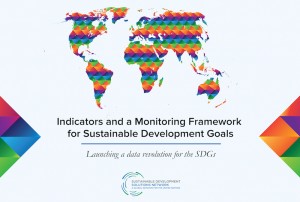 of the Sustainable Development Solutions Network – SDSN .
of the Sustainable Development Solutions Network – SDSN .
We follow Informal interactive hearings with representatives of NGOs, CSOs, major groups and the private sector on the post-2015 development agenda, in NY.
One more publication , as the outreach in Rio+20 process is 2015 Food Security Report, with key findings : – For the world as a whole, the MDG 1 indicators for prevalence of undernourishment and underweight children under 5 years of age have largely moved in parallel, providing a consistent message regarding achievement of the hunger target; – Underweight in children is expected to decline less rapidly than undernourishment, given that better hygiene conditions, access to clean water and more varied diets usually require more investment and more time to materialize than enhanced availability of calories: – Despite showing rapid reduction, Southern Asia is the region with the highest historical prevalence of underweight children among the developing regions; – In sub-Saharan Africa, there has been limited progress in reducing both undernourishment and child underweight; – Economic growth is necessary for sustaining progress in efforts to reduce poverty, hunger and malnutrition. But it is not sufficient; – Inclusive growth – growth that provides opportunities for those with meagre assets, skills and opportunities – improves the incomes and livelihoods of the poor, and is effective in the fight against hunger and malnutrition; – Improving the productivity of resources held by family farmers and smallholders is, in most cases, an essential element of inclusive growth and has broad implications for the livelihoods of the rural poor and for the rural economy in general; – In many situations, international trade openness has an important potential for improving food security and nutrition by increasing food availability and for promoting investment and growth; – Social protection directly contributes to the reduction of hunger and malnutrition by promoting income security and access to better nutrition, healthcare and education; – Prevalence of food insecurity and malnutrition is significantly higher in protracted crisis contexts resulting from conflict and natural disasters. For more information
European Western Balkans Interview: Andjelka Mihajlov, Environmental Ambassador for Sustainable Development
European Western Balkans Interview: Andjelka Mihajlov, Environmental Ambassador for Sustainable Development
Prof dr. Anđelka Mihajlov, Environmental Ambassador for Sustainable Development, is a Full Professor at Faculty of Technical Sciences, the University of Novi Sad and Coordinator for environment and green economy at the Public Policy Institute. UN and EU expert, scientist and consultant. She has more than 300 published scientific papers. In last 20 years, her frameworks of the professional orientation are the environment and sustainable development.
European Western Balkans: What are in your opinion, the biggest ecological problems in Serbia?
Andjelka Mihajlov: The decades in which values and prosperity were/is created based on the principles of traditional economic models not managed to change ever-growing excessive consumption of natural resources and to fight marginalization of environmental issues. This is diagnosis for all over the Western Balkan region. My opinion is, that despite some good and very good snapshots and flagship cases relevant for environment sector, the highest environmental problem in Serbia, as well as in all countries in region, is “position” of sector in agenda of development: not among priorities and priority concerns.
EWB: Serbia expects one of the most difficult chapters in the negotiations with the EU, Chapter 27 relating the environment. In what extent is Serbia preparing for the opening of this chapter?
Serbia is having now 14 years of commitment to EU membership. In environmental sector it was, and it is a great challenge, especially having in mind “grey and brown environmental heritage”. In the frame of these more than ten years of actions, I could tell that improvement is respectable. However, a lot of issues remain unsolved.
In 2012 Serbia became a candidate for EU membership, and on 21st of January 2014 officially opened accession negotiations. Environmental negotiation process in Serbia started with Explanatory screening in September 2014, and followed with bilateral screening in November 2014. Screening report is expected by EC sometimes in 2015. Progress towards EU in the sector Environment (and Climate Change) vary from limited progress (2005), to moderate advanced (2006), little progress (2007, 2008, 2013,2014), some progress (2012), progressed well (2011), the establishment of ambitious legislative program (2002-2004), and to good progress (2009,2010).
And coming back to the question, Serbia is prepared and preparing to open negotiation in Chapter 27, with strong message from my side: it is crucially important to include people/experts with appropriate knowledge, skills and experience, as well as to effective coordinate actions with other sectors.
EWB: What will pose as a major challenge in this chapter?
AM: One of the main challenge is to harmonize socio-economic development with EU’s Resources-Efficient and Low-Carbon Policies and to implement in national legislation, already transposited EU environmental acquis at large extend.
I would like to underline a few national strategic documents: Strategy towards EU accession (2005), National Environmental Program (2010), with Action Plan (2014/15) and the 2011 National Environmental Approximation Strategy. The last one sets three goals: full and high quality transposition of the EU environmental acquis; maintenance of effective and affordable environmental infrastructure and services; and institutional arrangements for efficient approximation.
EWB: How much are events such as IV International Miteco Forum important in this process?
AM: I should acknowledge the intention of the Miteco Forum to bring professionals and experts to the floor, together with governmental official, international organization representatives and all interested in subject. I am very happy that I had opportunity to share reflection from 2014 European Resources Forum, just finished in Berlin, where I participated. I talked on Panel, promoting sustainable use of natural resources in hand with climate change actions. The part of my presentation was short introduction of the Seventh Environmental Action Program to the Miteco Forum audience.
And one more value of Miteco Forum – this is starting to be growing “family gathering” of professionals interested in environmental and waste issues. My pleasure is to see among them, my colleagues, followers, former and current students and civil society fellows.

EWB: What do you think is a good model for solving the problems of industrial and hazardous waste in companies that are in the process of restructuring?
AM: It is known, that personally I “entered” environmental sector through “hazardous waste door”. For years I was technical expert on Basel convention issues.
I do support main principles of preventive measures and environmentally friendly measures for and future generations’ well-being.
I do not support “one model fit all” in solving historical and existing pollution, mainly related to the industrial and the hazardous waste, in companies changing ownerships.
Environmental Due Diligence and environmental liability tools, combined with technical feasible solutions, could serve as the guideline frame. For now, when country do not have licensed hazardous waste facility, technical feasible solution is the export of hazardous waste (as it is practice in Serbia). It has to be understand, that when changing the ownership of company it should go hand-in-hand with proposed solutions and decision who is paying.
EWB: What are benefits of Serbia joining the European Union when it comes to the field of environmental protection?
AM: With EU accession and membership, Serbian citizens should have great benefits to share the same, high environmental values.
Empowering the environment sector, including promoting knowledge based actions and straightening expert capacities, as well investment in infrastructure that supports all aspects of sustainable development (sustainable/green growth) with socially sensible job creation, are challenges we are facing. We should “position” environment sector much higher in the agenda of development!
Andjelka Mihajlov was a member of the Serbian Government as the Minister for Protection of Natural Resources and Environment from June 2002 to March 2004, commencing significant reforms in the environmental sector in the country, with significant results in international and regional cooperation. In 2006, UN Environment Program identified her as the woman “environmental leader of the Western Balkans”. Prof. Mihajlov headed the expert team which prepared the Study on Green Economy for Serbia which was the basic platform for participation of the Serbian delegation at Rio+20 UN Conference in Brazil. In the period from 2005 to 2010, she was the member of the Environmental and Social Advisory Council to the European Bank for Reconstruction and Development in London. She is a member of the National Committee for UNESCO and the Committee for Environment and Sustainable Development of the Serbian Chamber of Commerce. She is national mentor for Foundation for Environmental Education with the seat in Copenhagen
ERF 2014 – European Resources Forum, Berlin November 2014
EASD representative Prof Anđelka Mihajlov, participate on the 2nd ERF 2014. Thematic issues include: Europe’s responsibility for a sustainable use of natural resources, Targets for a sustainable resource use, Natural resources – to whom do they belong?, Resources for the “Energiewende”, UNEP’s International Resource Panel (IRP) on Decoupling & Circular Economy, Sustainable development goals and post 2015 process , Sustainable resource use and the role of the financial system, Resource efficiency in business – experiences from EU member states, How can Europe reach a sustainable use of natural resources?.
In Opening Plenary session participants were: Barbara Hendricks, Federal Minister for the Environment, Nature Conservation, Building and Nuclear Safety, Germany, Maciej H. Grabowski, Minister of the Environment, Poland, Chris Kuijpers, Directorate General, Ministry for the Environment, The Netherlands, Karl Falkenberg, General Director, European Commission, DG Environment, Maria Krautzberger, President, Federal Environment Agency, Germany, Ernst Ulrich von Weizsäcker, Co-Chair, UNEP International Resource Panel; Co-President, Club of Rome; Germany, Marina Fischer-Kowalski, Head, Institute of Social Ecology, Alpen Adria University; member of UNEP International Resource Panel; Austria, Arjen Hoekstra, Professor in Water Management, creator of the water footprint concept, University of Twente, The Netherlands,and Harry Lehmann, General Director, Division Environmental Planning and Sustainability Strategies, Federal Environment Agency, Germany.
EASD / ENV.net Team reading of European Parliament Resolution, January 2014
EASD / ENV.net Team reading of EP Resolution (European Parliament resolution on the 2013 progress report on Serbia 2013/2880 RSP) with focus on ENV.net related issues :
- the role of civil society organisations, i
- environment and climate change.
CSOs – Calls on Serbia to engage civil society through a constructive consultative mechanism during the entire accession process since it has a major role to play as a critical observer of the continued implementation of European reforms, while ensuring that dialogue and good neighbourly relations with Serbia’s neighbours take firm root within society; stresses the central role of active and independent civil society organisations (CSOs) and civil society’s role as a watchdog; underlines the importance of dialogue with CSOs and stresses the crucial role of civil society actors in contributing to enhanced regional cooperation on social and political issues; welcomes the government’s improved cooperation with NGOs, but calls for their broader consultation in policy making, including the formulation of policies and legislation and the monitoring of the authorities’ activities; calls on the Serbian Government to work increasingly with European institutions in order to ensure better access to European funds made available to civil society organisations, with a view to supporting their work as essential actors in Serbia’s European integration process; insists that state institutions must act in a transparent and accountable manner; urges the Serbian authorities to consult civil society and the business community and to include them in working groups on the drafting of new legislation.
Environment and Climate change– Considers it regrettable that too little progress has been made in the areas of the environment and climate change and calls on the Serbian authorities to adopt a comprehensive climate strategy in line with EU targets as quickly as possible; urges the authorities to step up reform efforts in the area of sustainable management of natural resources.
Regrets the lack of progress and continuing delays in the practical implementation of the renewable energy framework; notes that Serbia lags behind other applicant countries in the utilisation of renewable energy sources and expresses concern that Serbia’s 2020 renewable energy targets will not be met; emphasises the need for transparency in government consultation processes and regrets the Serbian authorities’ failure to take account of the views of international financial institutions in the adoption of the Power Purchasing Agreement (PPA); Urges the Serbian authorities to improve consumer protection policies, in particular with regard to general food safety principles and the establishment of a national reference laboratory; considers it regrettable that the law on genetically modified organisms has not yet been aligned with EU legislation; Supports the Belgrade city authorities’ campaign for Belgrade as European Capital of Culture 2020, and encourages related projects aimed at bringing Belgrade and Serbia culturally closer to the EU, in particular with regard to interethnic coexistence, multicultural understanding and interreligious dialogue.
Eye on EU approximation environmental challenges
Different events organised to raise awareness to EU approximation environmental challenges.
International Fair Eko-Svet was held from 2.6. october 2013. in Novi Sad where different innovations and new technologies were presented. Also, numerous interesting presentations on environmental issues were organized as an important part of this Fair.
10th International Environmental Protection and Natural Resources Fair – ECOFAIR is held from 9-12. October 2013. in Belgrade. Aside from participation of major national and international companies and institutions which are active in the field of environmental protection, there is also very rich professional and scientific program. For example, Regional Conference on Environmental Reporting – precondition for investment and sustainable business was held in the organization of Camber of Commerce and Industry of Serbia.
ENV.net Team awareness on climate change have media attention.
Minister for Education and Science underlined the importance of drinking water for development
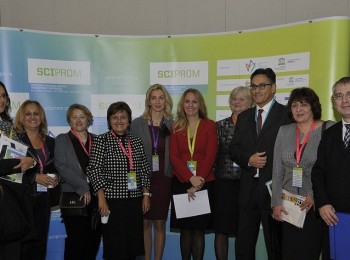
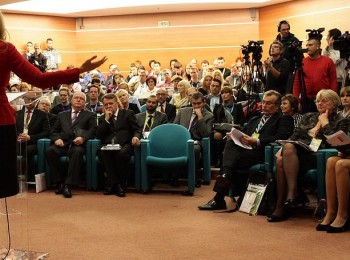 The First SEE Regional Science Promotion Conference (SCIPROM), is opened on October 2, 2013 in Belgrade, with the aim to bring together science promotion professionals, practitioners and enthusiasts to share experience and network in order to strengthen the link between science and society in our Region. In the current competitive global environment it is an imperative to enhance economic and social capacities by improving the educational structure of society, inspiring innovation and technological advancement and creating a milieu for appreciation of the value and benefits of knowledge.
The First SEE Regional Science Promotion Conference (SCIPROM), is opened on October 2, 2013 in Belgrade, with the aim to bring together science promotion professionals, practitioners and enthusiasts to share experience and network in order to strengthen the link between science and society in our Region. In the current competitive global environment it is an imperative to enhance economic and social capacities by improving the educational structure of society, inspiring innovation and technological advancement and creating a milieu for appreciation of the value and benefits of knowledge.
In the opening address, Minister for Education, Science and Technology development of Serbia Tomislav Jovanovic underlined, among others the importance of knowledge based actions, as well as the importance of drinking water for development.
Conference bring international experts and representatives of international organizations, research and educational institutions, science camps, science communicators, NGOs, private sector and media on board. ENV.net team participated.
This conference justify the path of ENV.net Serbia development linking European Integration, Knowledge based activities and sectors : Education, Science and Environment/Natural Resources.
More than 120 participants at EnE13 conference/ENV.net Roundtable: 10 June, 2013 in Belgrade
The main messages from this participatory ENV.net event are: environmental sector activities should be knowledge based, and education for environment and sustainable development should be priority. Capacities and continuity is very important for inclusion environment in other sectoral policies. Conference is institutionally supported by Ministry of Energy, Development and Environmental Protection and Ministry of Natural Resources, Mining and Spatial Planning, as well as National Commision for UNESCO. Draft Agenda ( Agenda FINAL on 06 06, strane 2-8 ) and CD Proceeding of Papers are published. This Conference is UNEP WED event.
At the opening session, Mrs. Prof. dr Zorana Mihajlović, Minister of Energy, Development and Environmental Protection of Republic of Serbia, Mr. Christoph Eichen, First Secretary Economic Cooperation, Embassy of Germany in Serbia, Mr Andrew Headey, EC Delegation in Serbia, Mr Jürg Staudenmann Deputy Resident Representative UNDP Serbia, SEIO Representative, European Integration Office, Government of the Republic of Serbia, Mr. Prof dr. Ivica Radović, Assistant Minister, Ministry of Education, Science and Technological Development of the Republic of Serbia, Mr Klaus Schmidt – Team Leader of IMPACT project – Deutsche Gesellschaft für Internationale Zusammenarbeit (GIZ) GmbH, Representative of Eptisa Regional Office for SEE, as well as Mr Dušan Stokic of Serbian Chamber of Commerce and Industry, shared the views related environmental sector and EU Integration. Event is officially oppened by Mr. Goran Trivan, Secretary for Environmental Protection, City of Belgrade.
Municipal Infrastructure Support Programme (MISP), EU-IPA Project, EPTISA, is presented by Dragana Vasić, Deputy Team Leader. MFA, LCA and Cleaner Production as Analitical Tools in Environment are presented by , prof. dr Hristina Stevanović Čarapina, IMPACT project- Deutsche Gesellschaft für Internationale Zusammenarbeit (GIZ) GmbH representative.
The Importance of the Participation of Civil Society Organizations in Decision-Making Process is addressed by Milena Banović, Office for Cooperation with Civil Society, Government of the Republic of Serbia Representative .
Analysis of current status of EU Environmental Integration and ENV.net project is presented by Prof dr Nataša Žugić Drakulić, National Coordinator, ENV.net Project .
Coordinator for Conference is Doc dr Dunja Prokić. Conference chair person is Prof f dr Andjelka Mihajlov.
Conference is supported by: Eptisa Regional Office for SEE, Hemofarm fond i Coca Cola Hellenic.
Selected presentation: Dragana Vasić EnE13 -MISP for Serbia
More selected presentations in Serbian.
Minutes from event are posted in gallery.
Reported by ACUNS, UNEP, FEE.
———————————————————————————————————————————
On behalf of Organizing Committee of the ninth Regional Conference “Environment to Europe-EnE13”, we want to inform you that the conference will be held on 10 June, 2013, presenting one of the events for World Environment Day (UNEP), as well as conference supporting EU accession process in sector Environment through project “Development of the ENV.net in West Balkans and Turkey: giving citizens a voice to influence the environmental process reforms for closer EU integration”. Serbian Ministry of Energy, Development and Environmental Protection acknowledged the importance of this Conference.
The theme for this year’s World Environment Day celebrations is Think.Eat.Save. Think.Eat.Save is an anti-food waste and food loss campaign that encourages you to reduce your foodprint.
Focus thematic issue this year is Local Environment. Each year EnE Conferences have different thematic focus.
We are inviting you to active participate on the Conference Environment to Europe – EnE13, either by preparing and presenting your paper, or by contributing as an auditor and participant (f application form_EnE13, Gidelines for paper preparation EnE13) .
Invitation is also distributed through FEE and ACUNS.
Application forms (with or without paper) and abstracts-papers send using email contact: conference.ene13@
Important dates:
Deadline for submission of applications form (for participants wishing to participate with paper): April, 15th
Deadline for submission of abstracts: April, 25th
Abstract acceptance notification: May, 6th
Deadline for submission of paper (extended abstracts): May, 15th (3-6 pages, in English or in Serbian / other language from former Yugoslavian Republics with Abstract in English)
Paper acceptance notification: May, 27th
Early registration deadline: May, 27th
Late registration deadline: May, 31st
Deadline for submission of application form without paper: May, 31st
Conference: June, 10
Participation fee :
Registration fee paid by May, 23 is 55 €
Regular price registration fee is 100 €
Payment: for details / account, please contact organizers by Email
Students are exempt from paying the registration fee.
Conference (EnE conferences) contributes to: EU and Accession, Regional Cooperation, International Cooperation, UNEP promotion , represent Scientific and other Conferences, Educational Signals and Courses, Scientific Signals and Projects, Promotion of Science, as well as Environmental Experts’ Networking
_______________________________________________________________________________________________________
WED: “Do not waste the food – avoid unresponsive consumption”
On June 5th, Association of Consumers (APOS) and Environmental Ambassadors for Sustainable Development (EASD), in Media Center, Organize Conference dedicated to UNEP WED message: “Think. Eat. Save”. Presentation by: Andjelka Mihajlov, Lela Tasic, Jovanka Nikolic, Nina Milos, Igor Damjanic.
Main messages includes:
1. Quantity and the type of food consumed by each of us, is indicator of responsible use of natural resources
2. Environmental sector, as well as consumers protection, should be within national priorities
Minutes from the Conference available in Gallery of photos.
Participation at UNEP Global Major Groups and Stakeholder Forum, Global Ministerial Environment Forum and High-Level Gender Forum
Environmental Ambassadors for Sustainable Development participated at the “Global Major Groups and Stakeholders Forum (GMGSF-14)”, and “The First Universal Session of the Governing Council/ Global Ministerial Environment Forum (GC-27/GMEF),” Nairobi, 16-22 February 2013. Ministers meeting for the first time under universal membership of 193 member states- again as a result of the decisions taken and adopted last year at Rio+20 and the UN General Assembly later in the year- adopted a welter of other decisions relating to the way UNEP will operate and work as the global platform for environmental policy-making and action over the coming years and decades. Governments called for the transformation of the existing Governing Council into a UN Environment Assembly of UNEP and to build stronger links between UNEP’s science-based Global Environment Outlook process and its ministerial meetings – further implementing the call by member states at Rio + 20to strengthen the science-policy interface.
Among the wealth of other decisions taken at the first Universal Membership of the UNEP Governing Council were: 1. A UNEP-led consortium will host and coordinate the Climate Technology Centre and Network (CTCN) which will be the implementing arm of the Technology Mechanism of the UN Framework Convention on Climate Change (UNFCCC), 2. The CTCN will work on leap-frogging the technical and financial hurdles to the even greater take-up of clean and renewable energies to low carbon tranportation and energy efficient buildings, 3. Full operationalization of a decade-long initiative to decouple economic growth from unsustainable use of natural resources and pollution generation-the 10 Year Framework of Programmes for Sustainable Consumption and Production Patterns (10YFP for SCP), 4. The UNEP-hosted initiative will assist countries in areas from sustainable public procurement, lifestyles and education to sustainable buildings and construction and sustainable tourism, including ecotourism – again bringing from outcome to implementation other key aspects of the Rio+20 Future We Want, 5. Governments also decided to convene in October this year an intergovernmental diplomatic conference to formally adopt the Minamata Convention on Mercury that was agreed in January in Geneva under a UNEP-facilitated negotiation-again a further implementation of the Rio+20 outcome document.
Over 1300 participants from 147 countries, including 80 ministers, representatives of UN agencies, international organizations, academia, NGOs, business and industry, and women and youth organizations attended the first Universal Session of the GC following the decision of the United Nations General Assembly to strengthen and upgrade UNEP, as called for in the Rio+20 outcome document. Delegates adopted 13 decisions, on inter alia:
– the Intergovernmental Science-Policy Platform on Biodiversity and Ecosystem Services (IPBES);
– coordination across the UN system, including the Environment Management Group (EMG);
– oceans;
– sustainable consumption and production;
– the green economy in the context of sustainable development;
– advancing justice, governance and law;
– state of the environment; and
– chemicals and wastes.
The GC adopted a decision on institutional arrangements that, inter alia, invites the UN General Assembly to rename UNEP’s governing body “UN Environment Assembly,” and provides that the body “will ensure” the active participation of all relevant stakeholders and explore new mechanisms to promote transparency and effective engagement of civil society in its work and that of its subsidiary bodies, inter alia, by: developing by 2014 a process for stakeholder accreditation and participation that builds on the existing rules of procedure and takes into account the inclusive modalities of the Commission on Sustainable Development (CSD) and other relevant UN bodies.
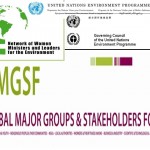
The day before the Governing Council got underway, the Network of Women Ministers and Leaders for the Environment (NWMLE) and UNEP hosted the second High-Level Gender Forum. Prof Andjelka Mihajlov participates, by invitation to “Gender Forum” as a member of the “Network of Environmental Women Ministers and Leaders”, as the former Minister for Protection of Natural Resources and Environment. The forum participants called upon ministers and environmental leaders to have dedicated officials for coordination of related gender and environment programmes and agreed to send a consolidated proposal on gender actions to be forwarded for consideration by UN Secretary General’s High-level Panel of Eminent Persons on the Post 2015 Development Agenda. The women ministers also requested nations to support the ratification of the Minamata convention on Mercury, which opens for signing in October.
More about meetings at www.unep.org . Moments from EASD participation are in Galleries of pictures. These activities are foreseen as the important international cooperation activities.
Prior to this, organisation participate at Rio+20 Conference.
Summer Eco-School
“Environmental Ambassadors for Sustainable Development”, in cooperation with City of Sombor administration – Department of Public Services and Utilities organised Summer Eco-School in UNESCO Biosphere Reservate Golija (MAB – UNESCO) – Studenica (27-31 August 2012). Participated students from Sombor attending different faculties. Lectures and educative workshops include concept of protection of natural and cultural heritage within biosphere reservate, biodiversity and sustainable use of plant resources, Sustainable tourism and possibilities for development of rural areas, Ecological footprint, as well as walking tours (“Learning by Walking”). Ecological footprint is developed through support by UNESCO, and represents educational signal and courses.
Environmental Education for students from Sombor
“Environmental Ambassadors for Sustainable Development”, in cooperation with City of Sombor administration – Department of Public Services and Utilities organised Summer Eco-School “2012 Golija Summer Eco-School” in UNESCO Biosphere Reservate Golija – Studenica (27-31 August 2012). Participated students from Sombor atending diferent faculties. Lectures and educative workshops include concept of protection of natural and cultural heratage within biosphere reservate, biodiversity and sustainable use of plant resources, Sustainable tourism and possibilities for development of rural areas, Ecologycal footprint, as well as walking tours (“Learning by Walking”).
In December 2013, 3 workshops were held for preschool children in Sombor.
We have expertise and deliver results related issues:
Regional Environmental Cohesion
REGIONAL ENVIRONMENTAL COHESION, from Initiative to Process
Initiative – Environmental Cohesion Initiative as the strategic concept is visionary perspective, promoting “environment as the no-borders concept” and “environmental soft diplomacy” tool for regional cooperation. Initiated in Western Balkan in 2003 by at that time Serbian Minister for the Protection of Natural Resources and Environment, through different Project implementation, become Process.
Our projects implemented (2005-2011)
| Project | Partners | Snapshots | |
2005/2006 |
Building a common ‘green’ future in Europe (Regional Initiative for cohesion in the field of environment), project supported by Open society Fund |
Environmental Ambassadors-Serbia,Biosfera – Macedonia,Most – Montenegro,Konak-Kosovo territory,Center for Energy Efficiency – Bosnia and Herzegovina,Sun of Liquenas – Albania
|
The platform SEE Regional Delaration on Environmental Cohesion as the tool to EU integration and Sustainable Development is approved in 2006 (on Regional FORUM EfE07 Preparatory Meeting in Belgrade, June 5th). Further, Declaration is presented at UNECE Committee on Environment Policy, Ad Hoc Preparatory Working Group of Senior Officials “Environment for Europe”, Second meeting, Geneva, 29-30 June 2006, with request to include it in Belgrade 2007 Conference. |
2007/2008 |
RENCO – Regional Environmental Cohesion: Towards sustainable development strategy for urban South-East Europe, project supported by Sida and Serbian Ministry of Environment |
I. Čarapina, N. Azemovski, S. Stevović, M. Apostolovski, M. Šarić, L. Bratić, A. Jovanović, T. Knez-Milojković, Z. Moravčević, A. Knez-Milojković, A.Mihajlov, REGIONAL ENVIRONMENTAL COHESION: TOWARDS SEE URBAN SUSTAINABLE DEVELOPMENT STRATEGY (RENCO), Sustainable Spatial Development of Towns and Cities, Thematic Conference Proceedings, Volume 1 (M. Vujošević, ed.), Institute or Architecture and Urban&Spatial Planning of Serbia, ISBN: 978-86-80329-51-2, Belgrade, 2007, pp.279-296 ( In Serbian rad ICarapina i dr RENCO-final) |
|
2009-2011 |
Regional environmental advocacy and cohesion of the Western Balkans (abbreviation: REA), Project supported by the the Embassy of the Kingdom of the Netherlands. |
„ Urban Research Institute (URI)“ (Tirana),„Center for ecology i energy“ (Tuzla),„Advocacy Training and Resource Center“ (Pristina),„4x4x4 Balkan Bridges“ (Skopje),„Green Home“ (Podgorica),„Center for modern skills“ (Beograd)„Environmental Ambassadors“ from Belgrade, as the Regional coordinator.
|
SnapshotsBells movementNeeds for Tailored Knowledge and Skill-Based Education for Sustainable Development: Balkan Environment Life Leadership Standards Courses |
Process, since 2003
From 2003, when initiated, though project implemented, Regional Environmental Cohesion toward EU integration and Sustainable Development become Process, having different paths of implementation in years 2012+.
With our activities in years 2013+, Environmental Ambassadors for Sustainable Development, is further supporting this strategic mission, through project implementation (like ENV.net, Environment to Europe)

